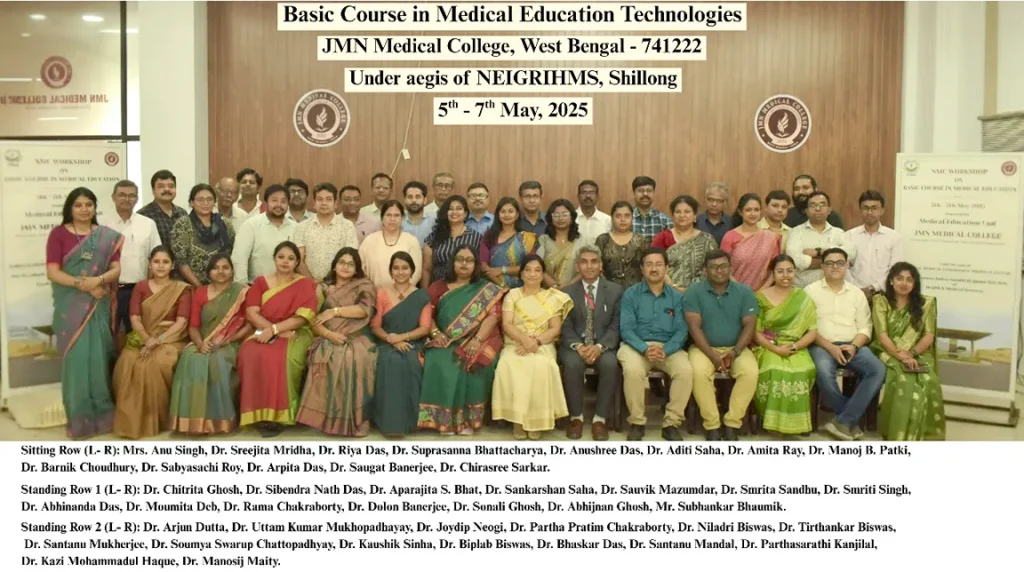
Organized by: JMN Medical College, Chakdaha
Under the aegis of: NMC Regional Centre – MET, NEIGRIHMS, Shillong
Date: 5th to 7th May 2025
Venue: Academic Auditorium, JMN Medical College Campus
The Basic Course in Medical Education (BCME) 2025 was conducted at JMN Medical College, Chakdaha, from the 5th to the 7th of May 2025, under the auspices of the National Medical Commission’s Regional Centre for Medical Education Training (MET), NEIGRIHMS, Shillong. This program is a cornerstone initiative by the NMC to empower medical faculty with the competencies required to effectively implement Competency-Based Medical Education (CBME), as mandated by the Graduate Medical Education Regulations.
The workshop aimed to equip faculty members with the necessary teaching, learning tools, assessment strategies, and curriculum development techniques to transition from traditional to competency-based education. The program included a mix of theoretical inputs, experiential learning, group exercises, hands-on skill sessions, and reflective practices, all anchored in adult learning principles.
A total of over 30 faculty members from various departments of the institution participated actively in this three-day program, fostering a spirit of academic inquiry, peer learning, and professional growth.
Objectives of the Program
The BCME workshop was structured around the following key objectives:
- To enhance understanding of educational philosophies and learning theories relevant to medical education.
- To develop skills in designing learning objectives, aligning teaching-learning methods (TLMs), and developing assessment tools.
- To familiarize faculty with CBME modules including AETCOM and SDL.
- To promote reflective practice, mentoring, and continuous academic growth among medical educators.
- To introduce faculty to principles of formative and summative assessments, including internal assessment planning.
- To encourage the use of skill-based teaching and assessment through clinical and simulated environments.
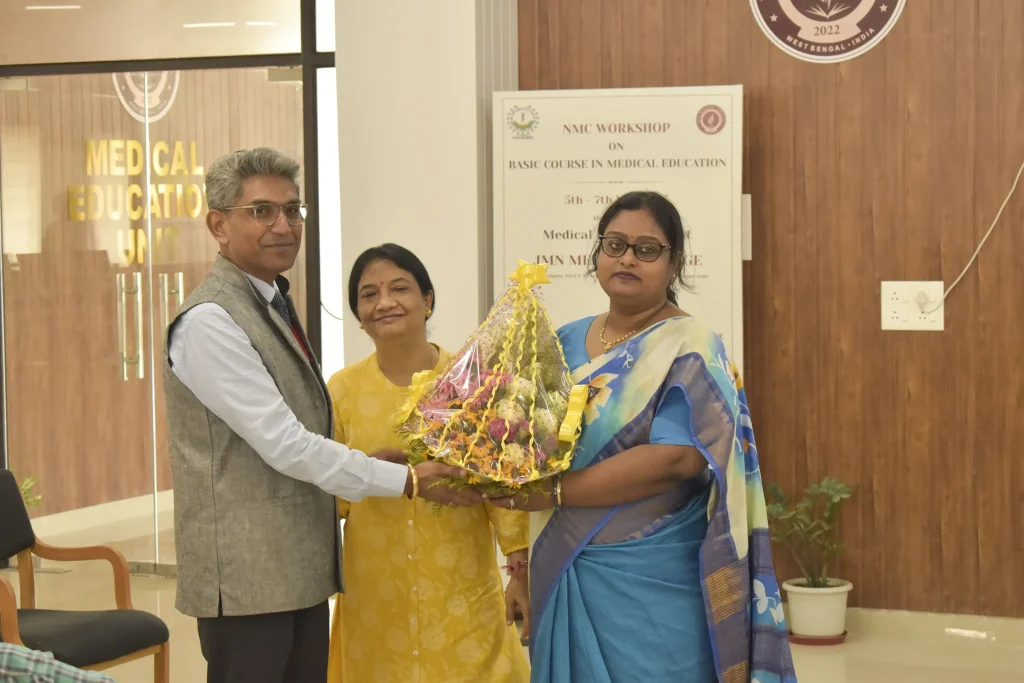
Detailed Day-Wise Proceedings
Day 1: Foundations of Medical Education and the Learning Process
Inaugural Session and Ice-Breaking Activities
The program began with a warm welcome address by the organising faculty followed by an interactive introductory session that included a pre-test, faculty introductions, and group dynamics exercises. Facilitators Dr. Amita Ray, Dr. Aditi Saha, Dr. Arpita Das, and Mrs. Anu Singh used team-building activities to set the tone for collaborative learning throughout the workshop.
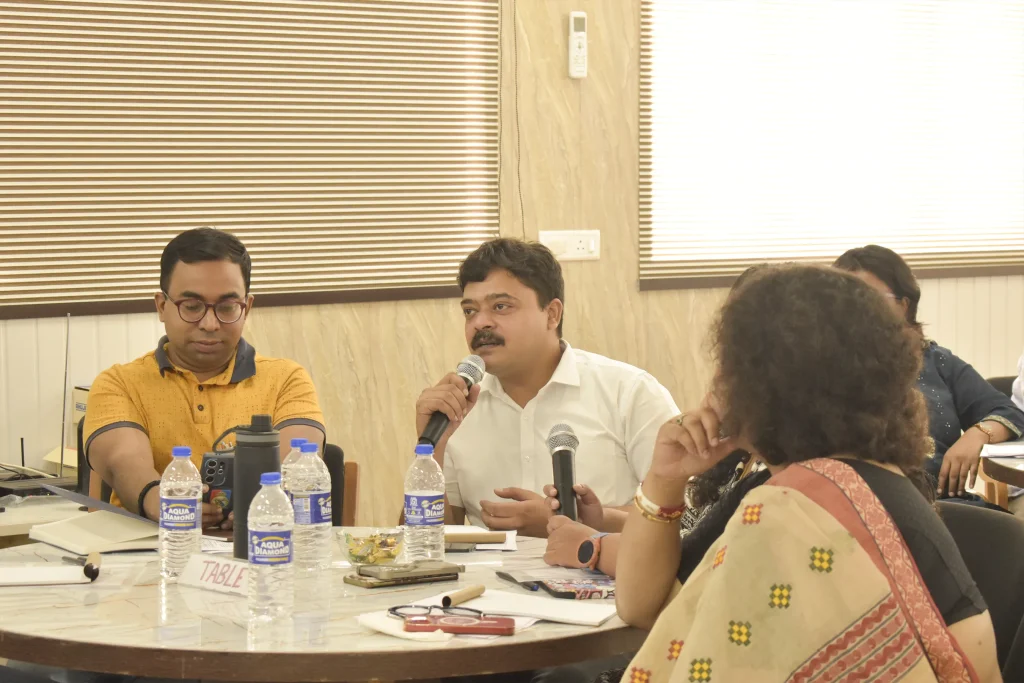
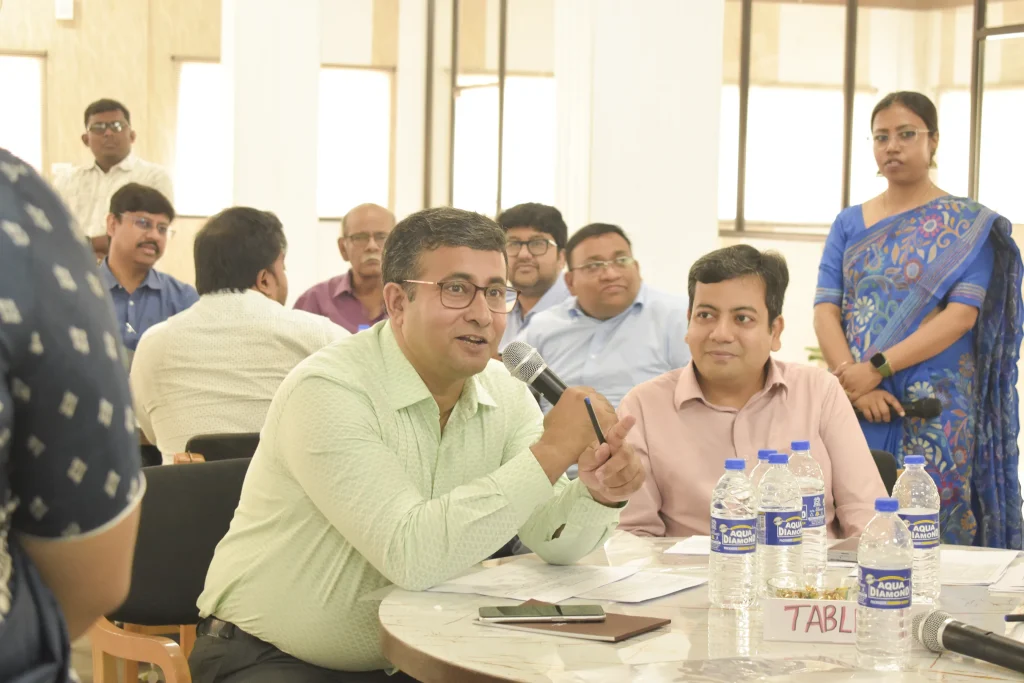
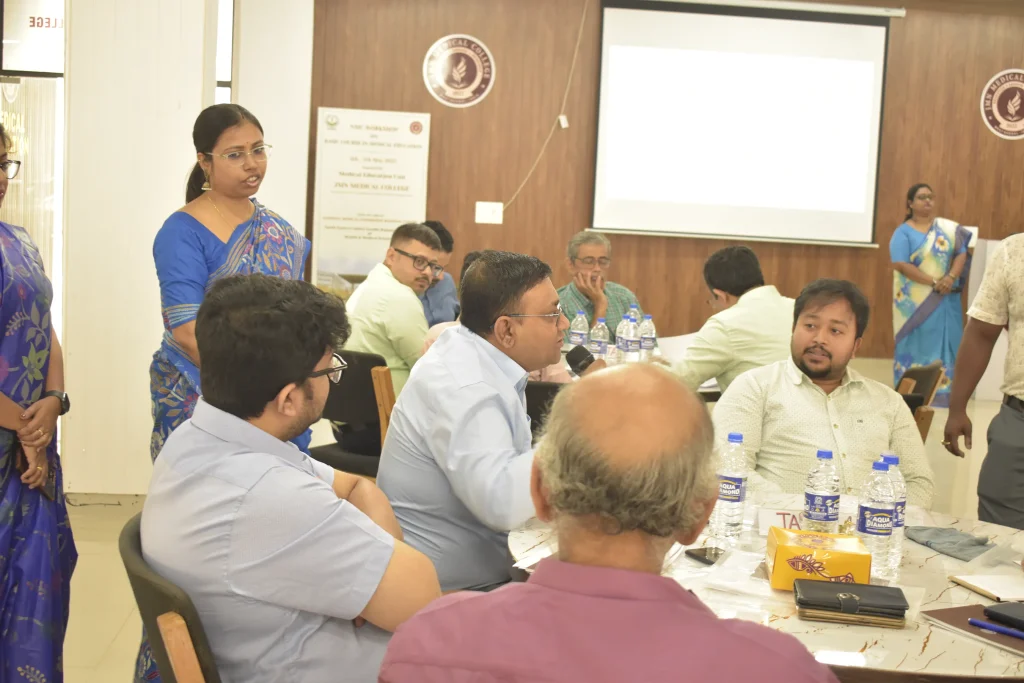
Session on Learning Theories and Domains
Led by Dr. Sabyasachi Roy, Dr. Riya Das, and Dr. Chirasree Sarkar, this session focused on the principles of learning, highlighting the hierarchy of learning outcomes (Bloom’s Taxonomy) and the three domains of learning—cognitive, psychomotor, and affective. Active discussion was encouraged, and participants related their own teaching experiences to the theoretical frameworks presented.
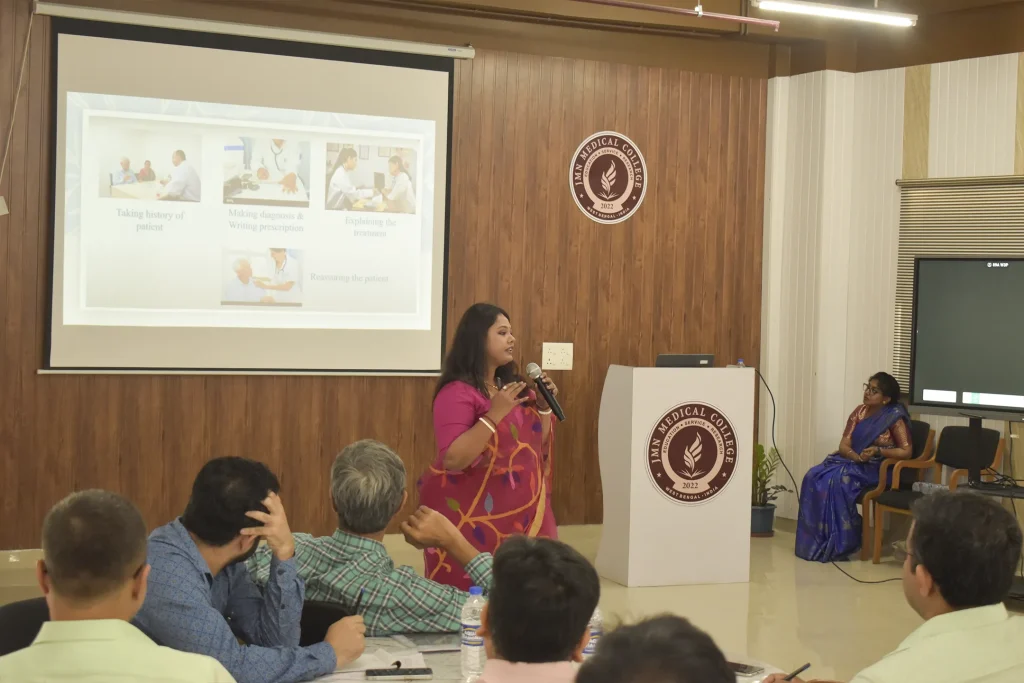
Goals, Roles, Competencies, and Learning Objectives in CBME
This session, conducted by Dr. Arpita Das and Dr. Suprasanna Bhattacharya, delved into the structure of CBME, emphasizing the critical linkage between the roles of an Indian Medical Graduate (IMG), expected competencies, and corresponding learning objectives (LOs). Participants engaged in group exercises to frame specific, measurable, attainable, relevant, and time-bound (SMART) objectives.
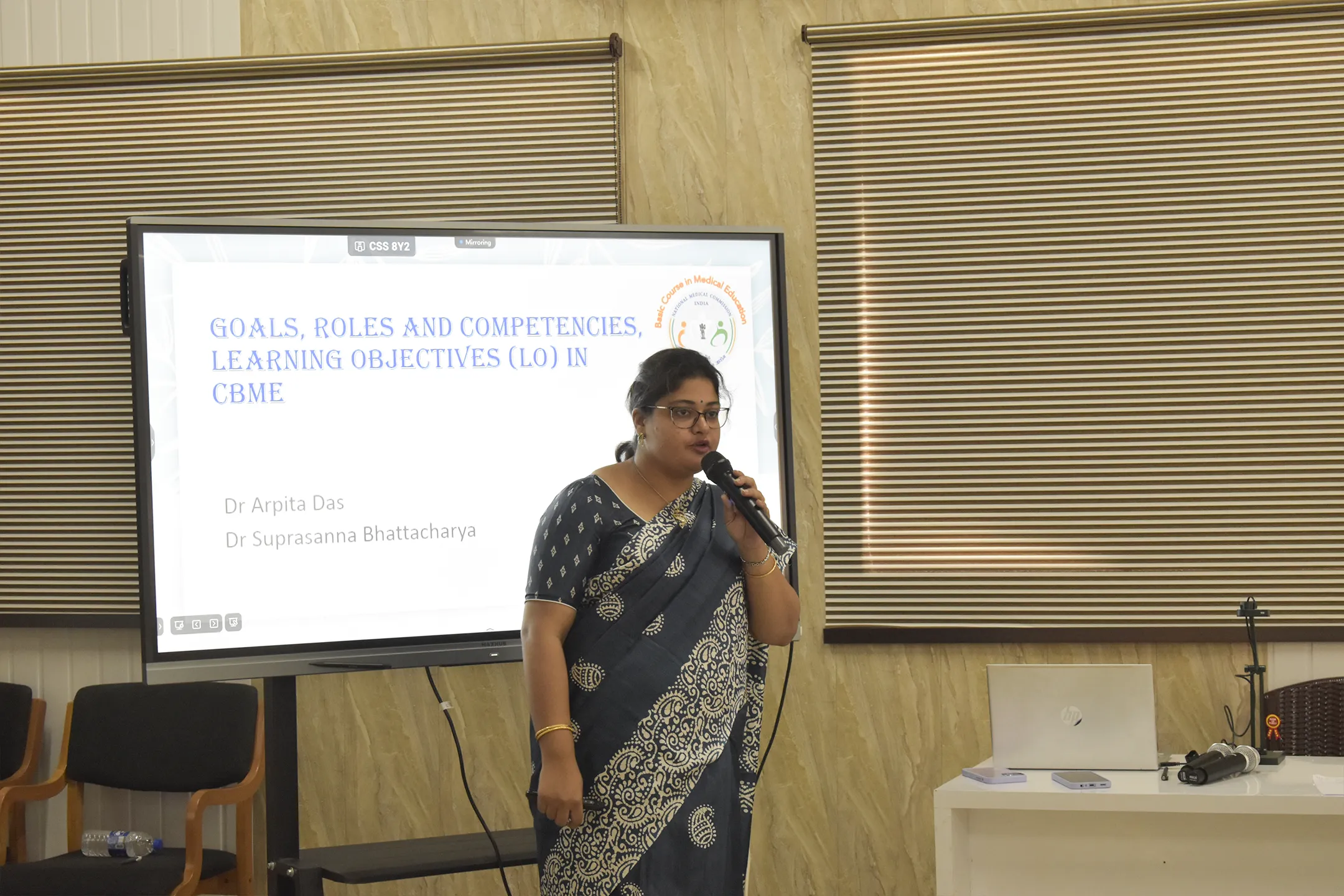
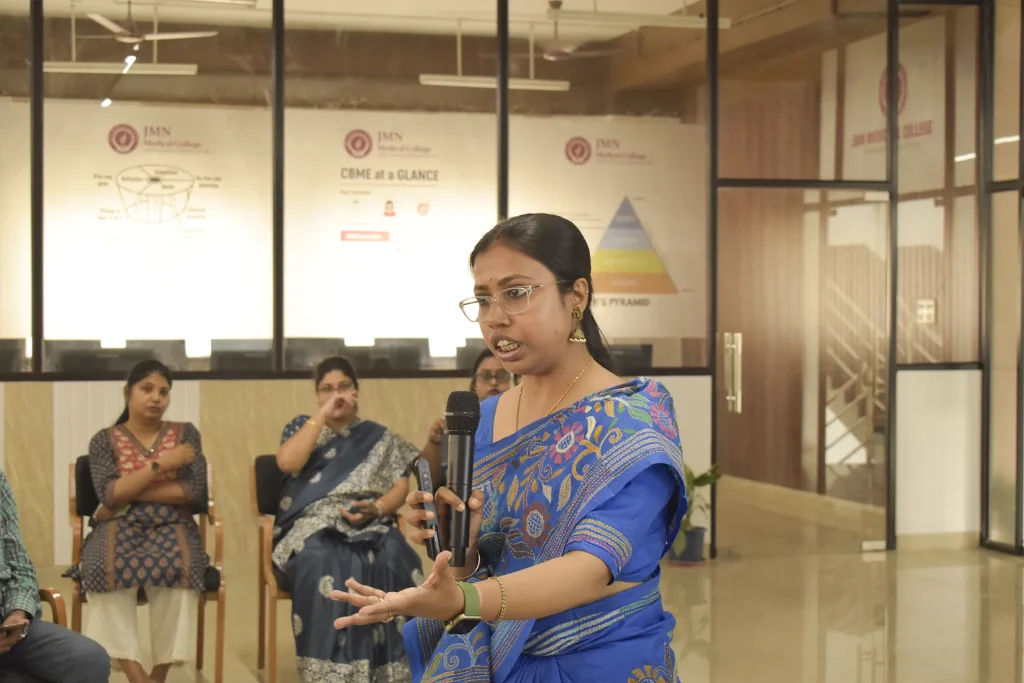
Teaching-Learning Methods (TLMs)
Faculty members Dr. Barnik Choudhury, Dr. Chirasree Sarkar, and Mrs. Namrata Chatterjee explored traditional and modern TLMs, emphasizing interactive large group teaching, small group activities, problem-solving sessions, and skills demonstrations. Resource faculties also introduced the participants to various engaging techniques for both large group and small group teaching. Participants engaged in a group activity focussed on designing various methods for large group and small group teaching.
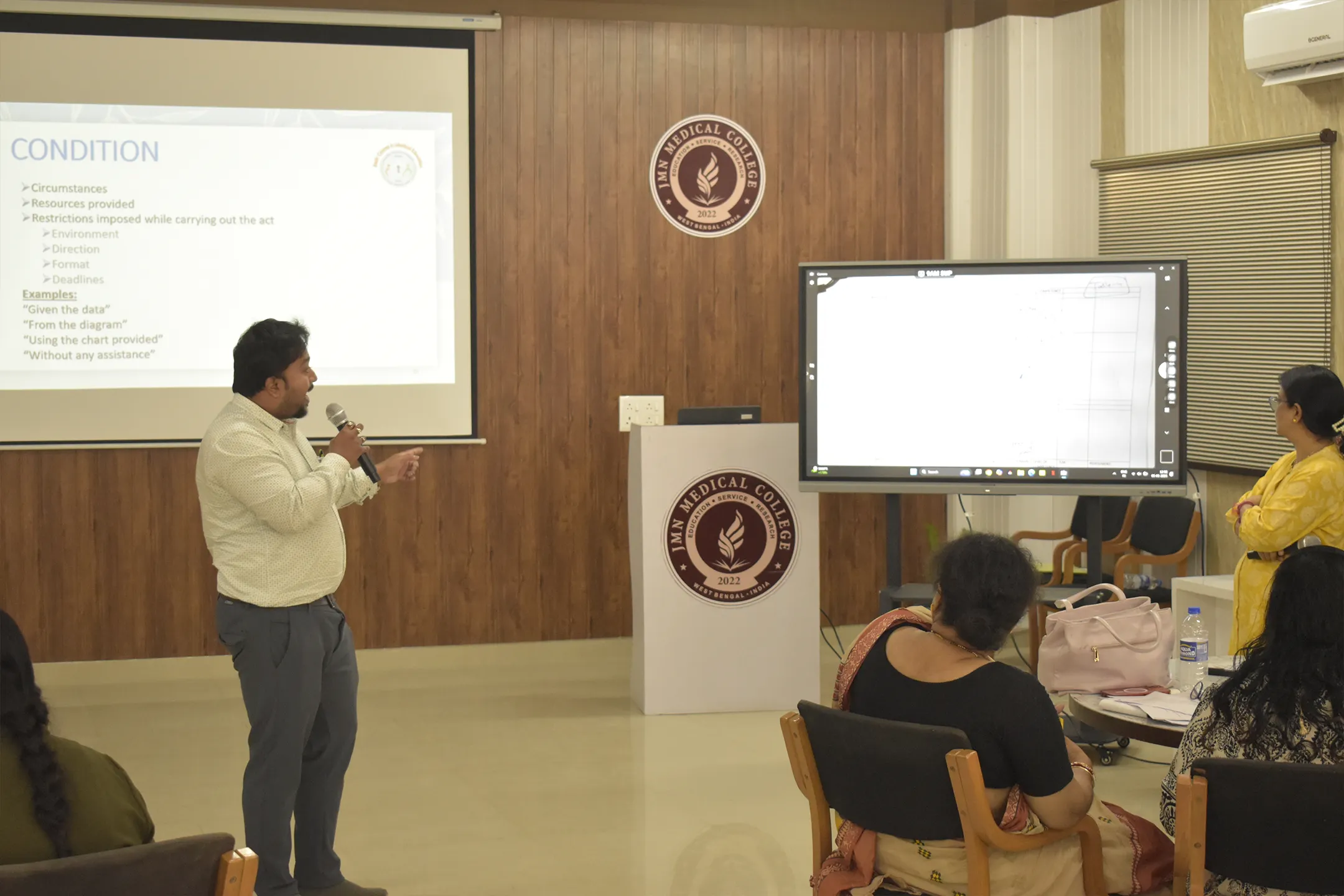
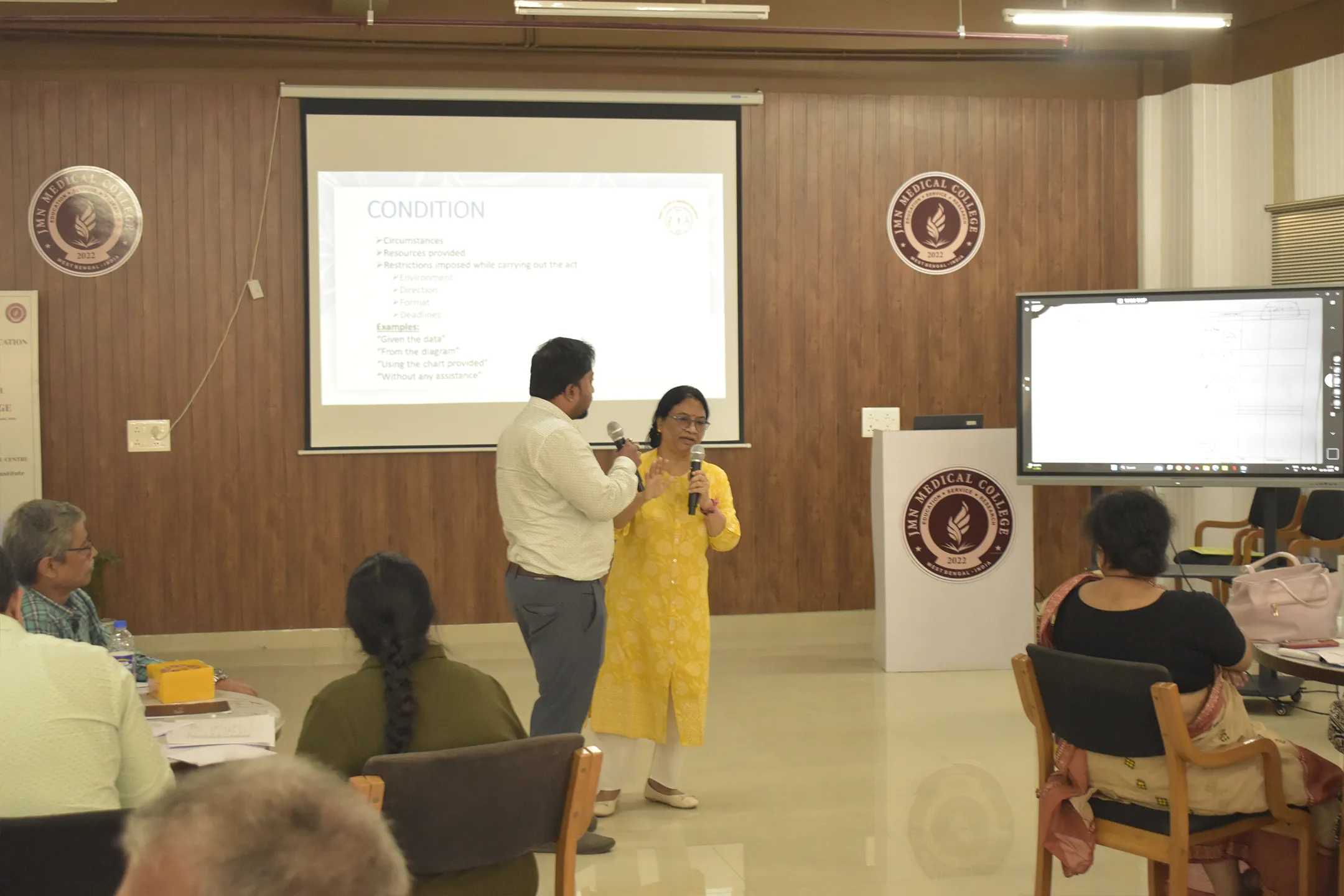
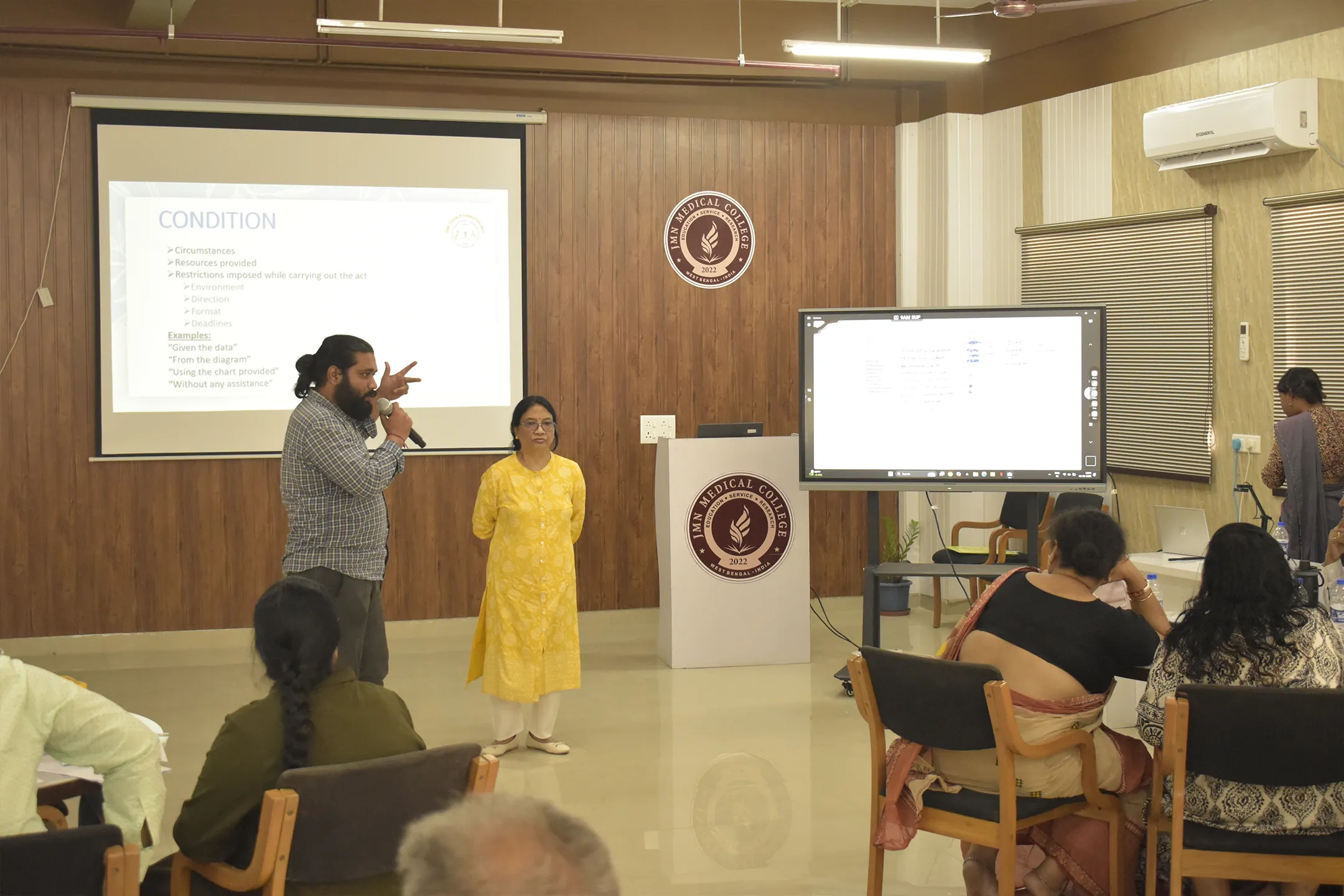
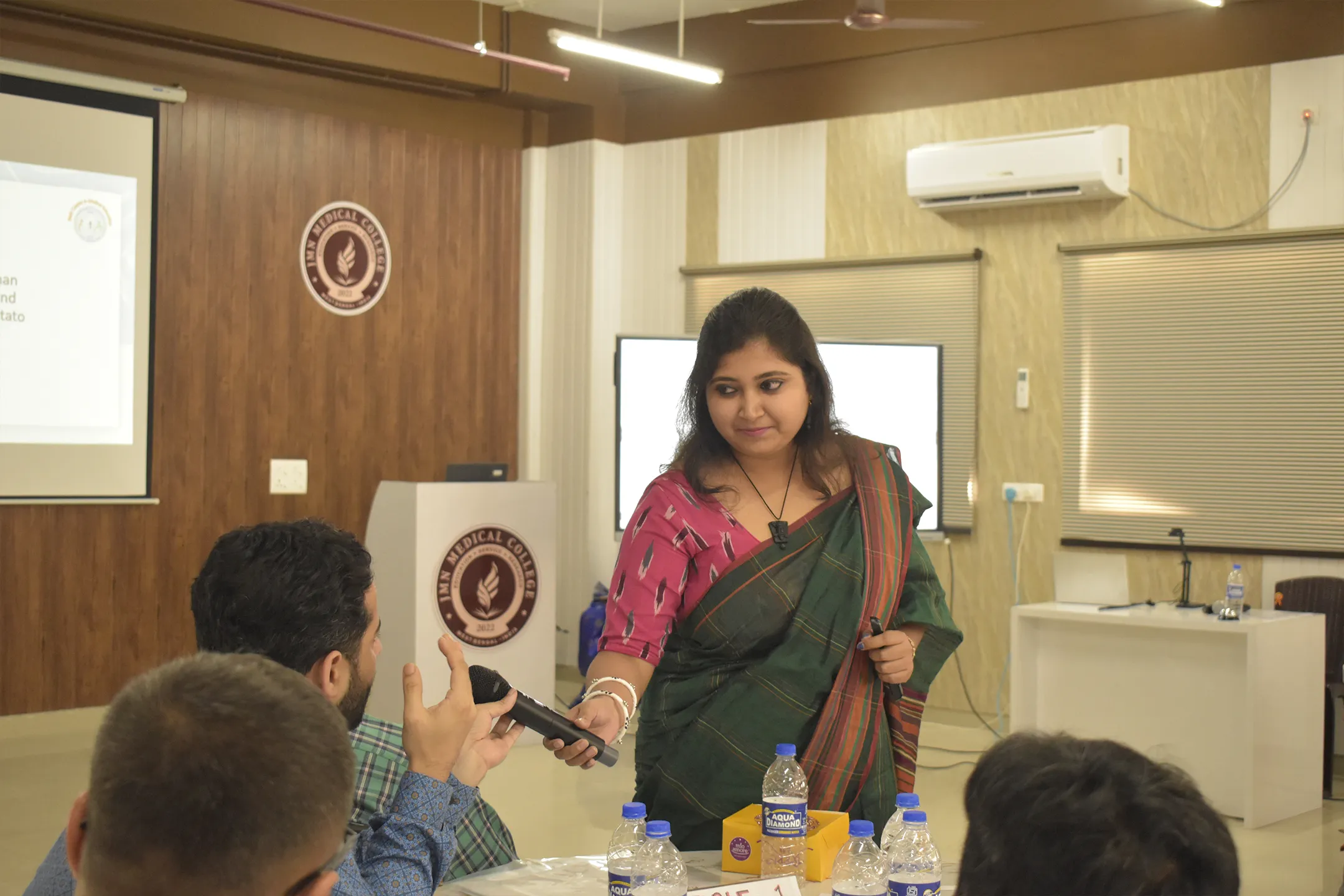
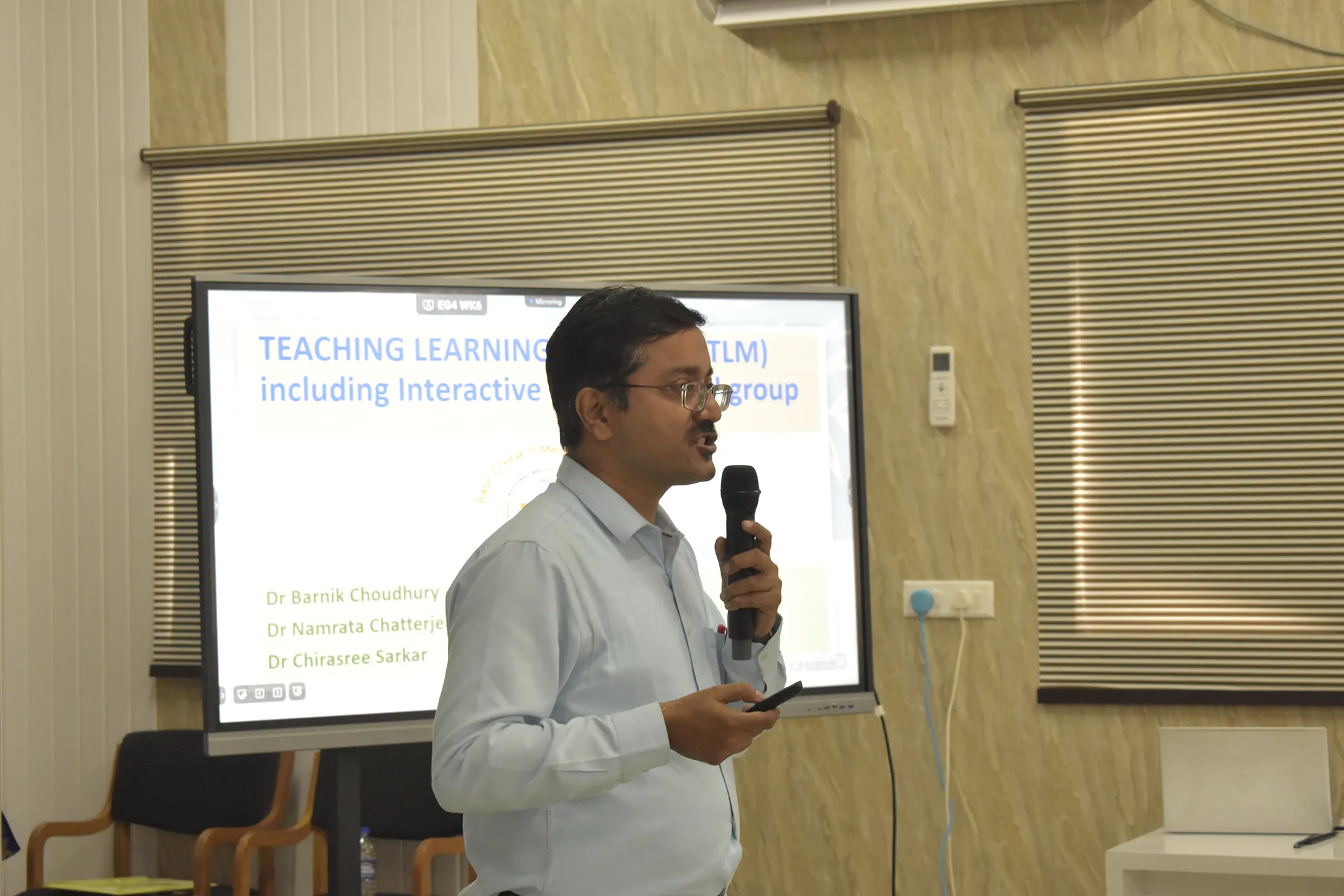
Assessment Concepts
The afternoon sessions covered the basics of assessment planning. In the first part, Dr. Amita Ray and Dr. Sreejita Mridha discussed the types and purposes of assessment, including the key attributes of a good assessment: validity, reliability, feasibility, and acceptability. Later, Dr. Anushree Das, Dr. Aditi Saha, and Dr. Jyoti Paul guided participants through Internal Assessment (IA) planning, incorporating formative assessment and feedback mechanisms. Participants practiced designing an IA module and discussed institutional challenges and solutions.
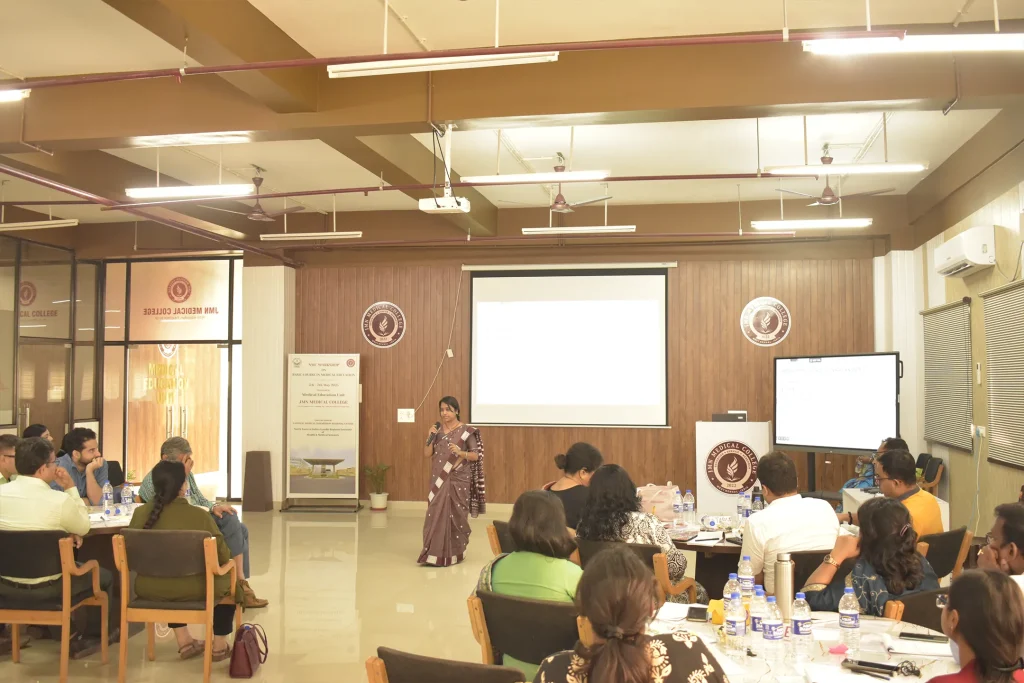
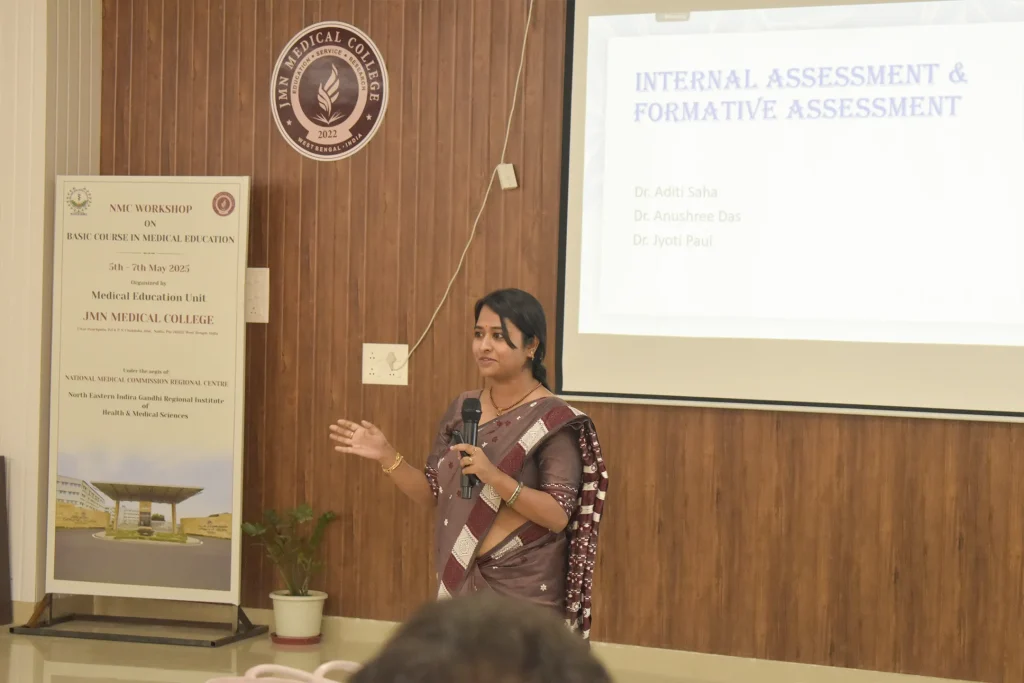
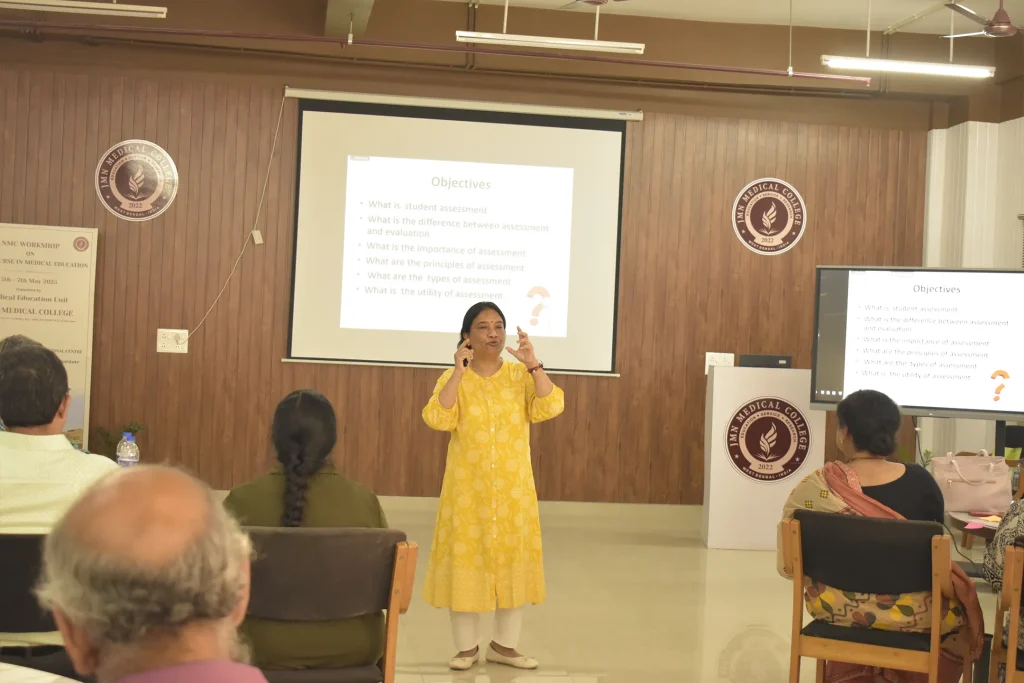
Day 2: Advanced Clinical & Practical Skill Techniques and Assessment Design
AETCOM Module Implementation
In the first session of the day, Dr. Barnik Chaudhury and colleagues demonstrated how to implement the Attitude, Ethics, and Communication (AETCOM) module through multi-disciplinary teamwork. Participants engaged in discussions on integrating AETCOM throughout the UG curriculum and using role play, simulations, and case scenarios as teaching tools. Participants took part in role plays depicting various real-life scenarios commonly encountered by doctors.
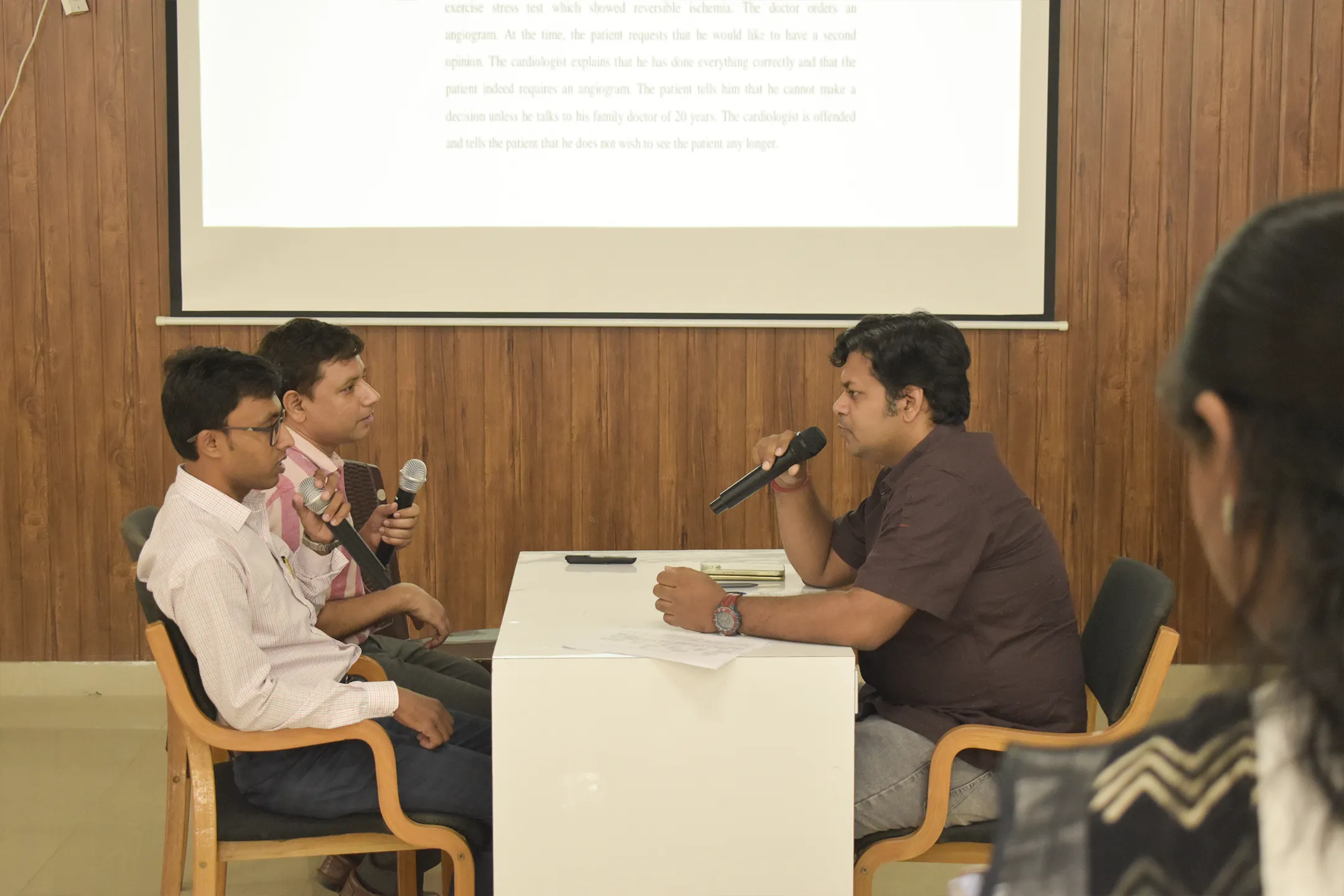
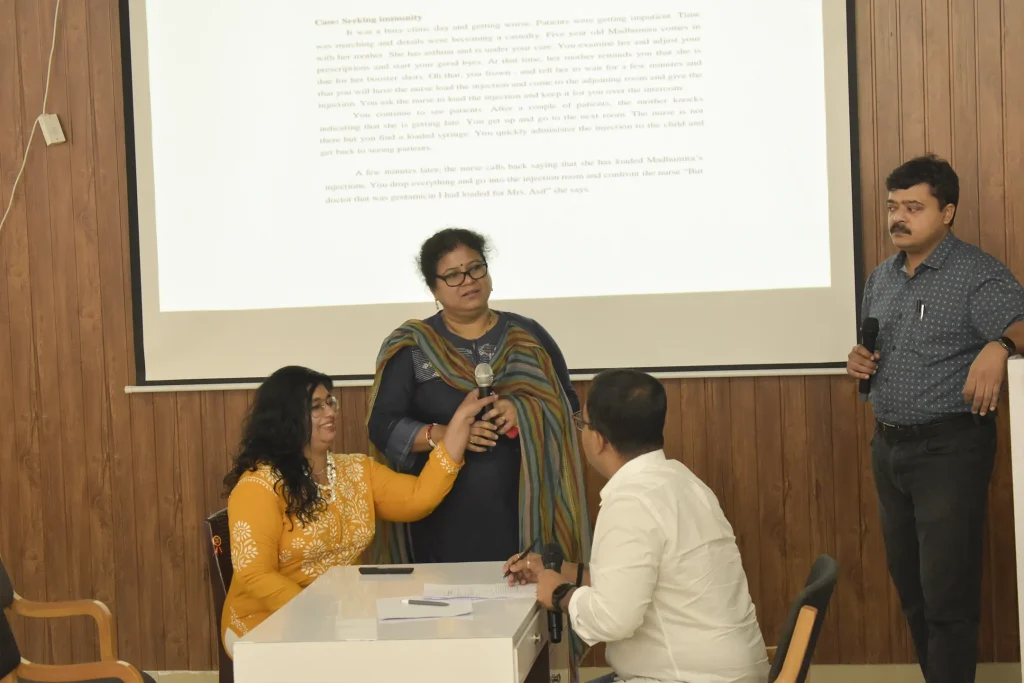
Self-Directed Learning (SDL)
The session led by Dr. Arpita Das introduced participants to the concept of self-directed learning, encouraging faculty to help students take ownership of their educational journey. Participants were shown how to structure SDL modules, set objectives, and evaluate outcomes.
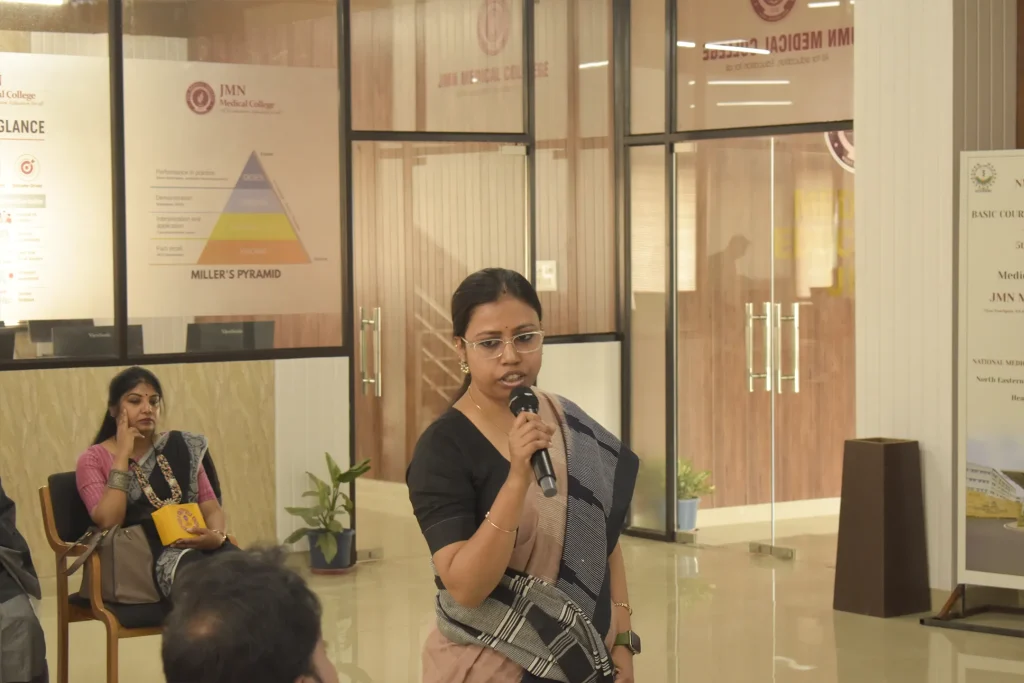
Clinical and Practical Skill Teaching
In one of the most interactive segments, Dr. Suprasanna Bhattacharya, Dr. Sabyasachi Roy, and Dr. Amita Ray demonstrated practical skill teaching using models like SNAPPS, One-Minute Preceptor (OMP), Mini-CEX, and DOPS. The use of a Skills Lab was emphasized as essential for safe and standardized skills acquisition before real-world application.
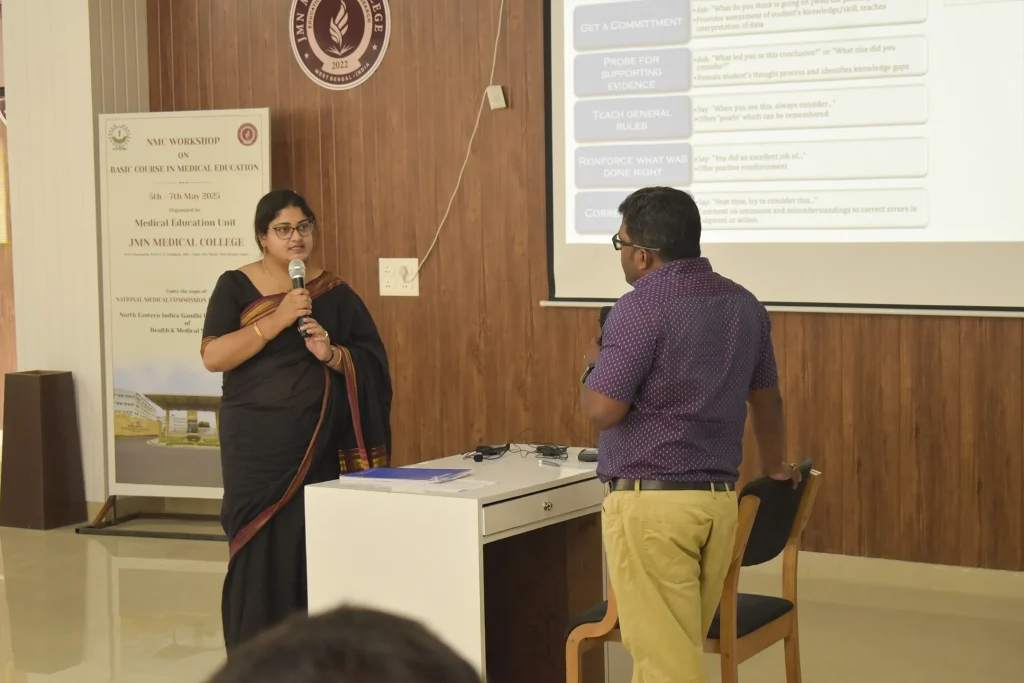
Aligning TLMs with Competencies
This hands-on session, facilitated by Dr. Aditi Saha, Dr. Riya Das, and Mrs. Anu Singh, guided faculty in choosing the right teaching method for a given competency through aligning them with SLOs and identifying the corresponding domains of learning. Participants were divided into groups and given real examples to create teaching-learning maps aligned with competencies.
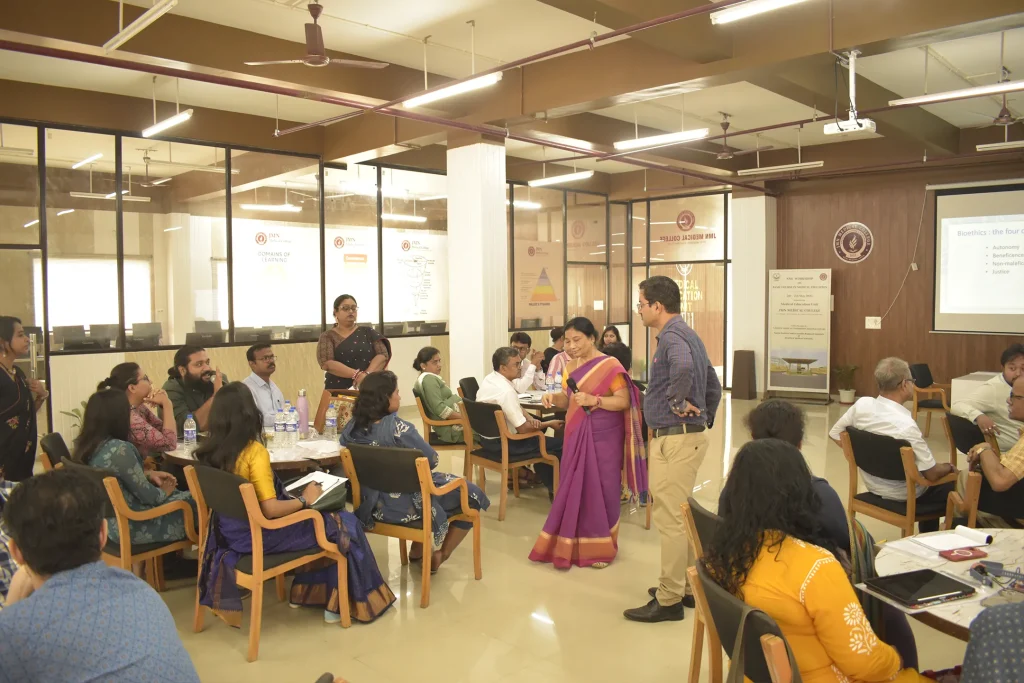
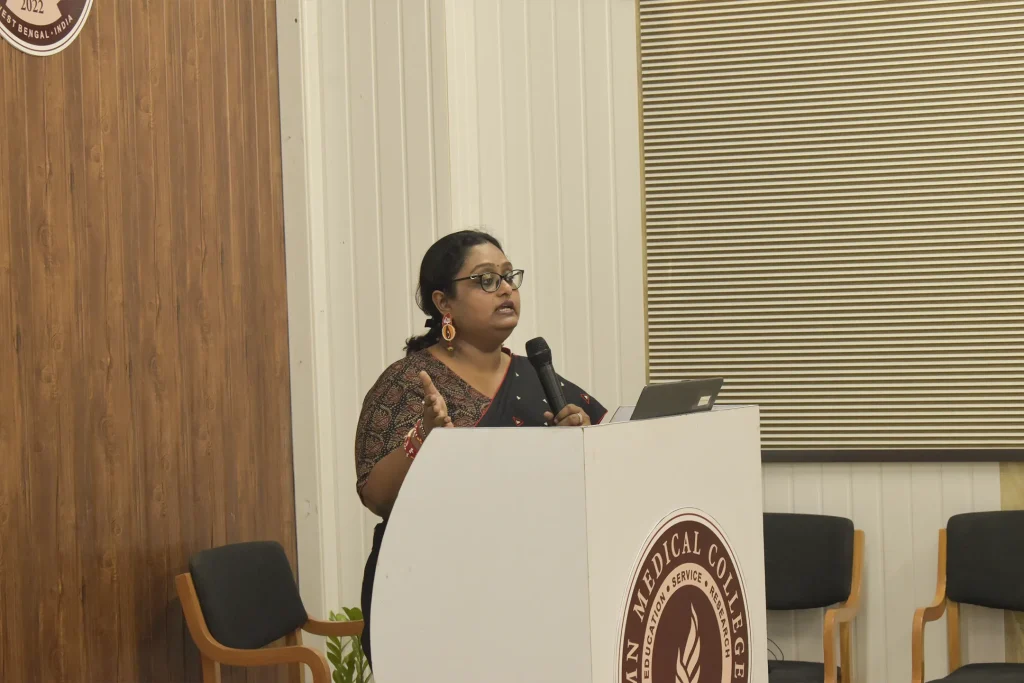
Assessment Blueprinting, Essay & MCQ Writing
The final sessions of the day, led by Dr. Amita Ray, Dr. Anushree Das, and Dr. Arpita Das, were dedicated to the art and science of assessment. Topics included blueprinting, writing valid essay questions, constructing MCQs, and avoiding common pitfalls such as cueing or ambiguity. Faculty members practised writing and critiquing one another’s questions, with lively discussion on their applicability and psychometric robustness.
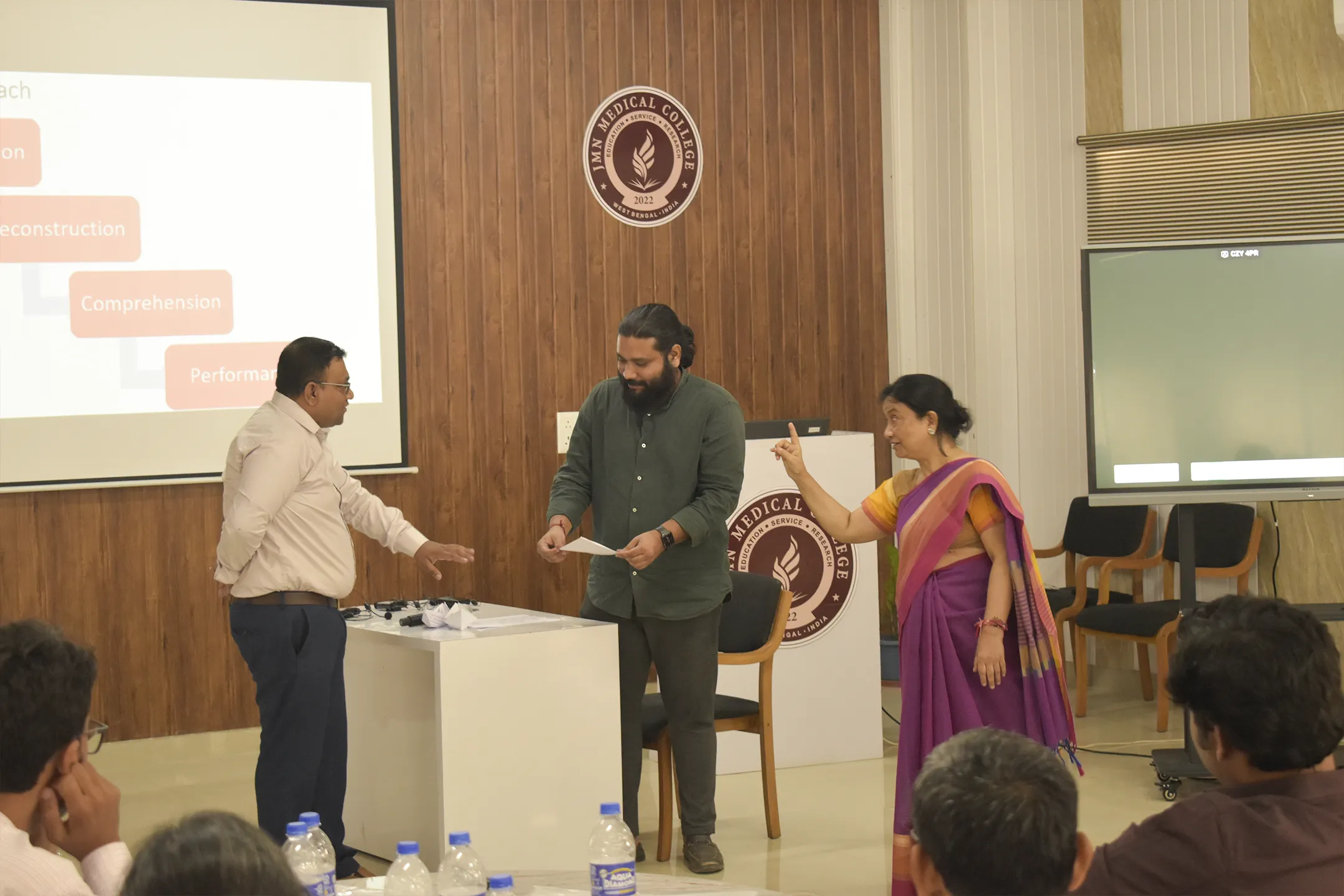
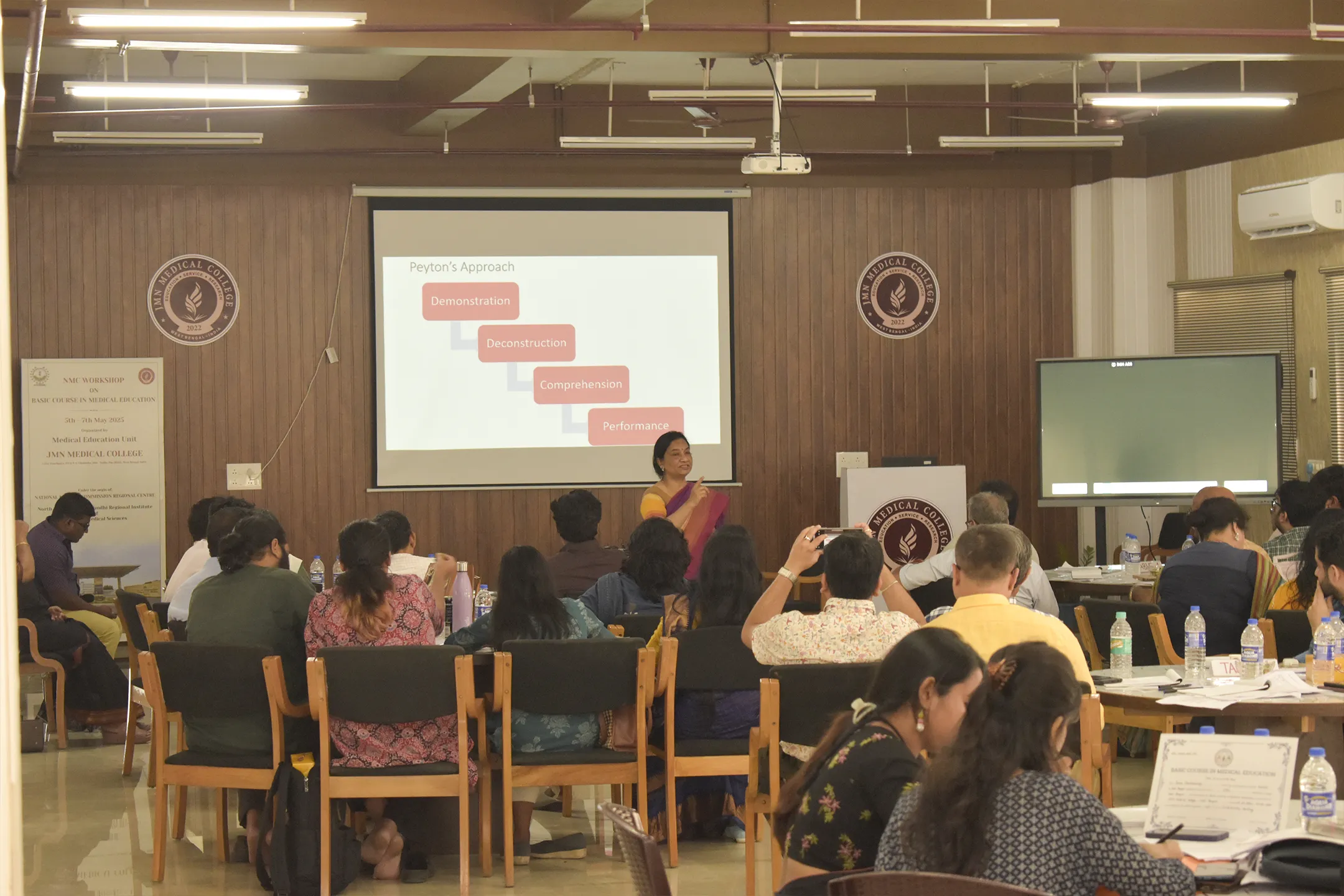
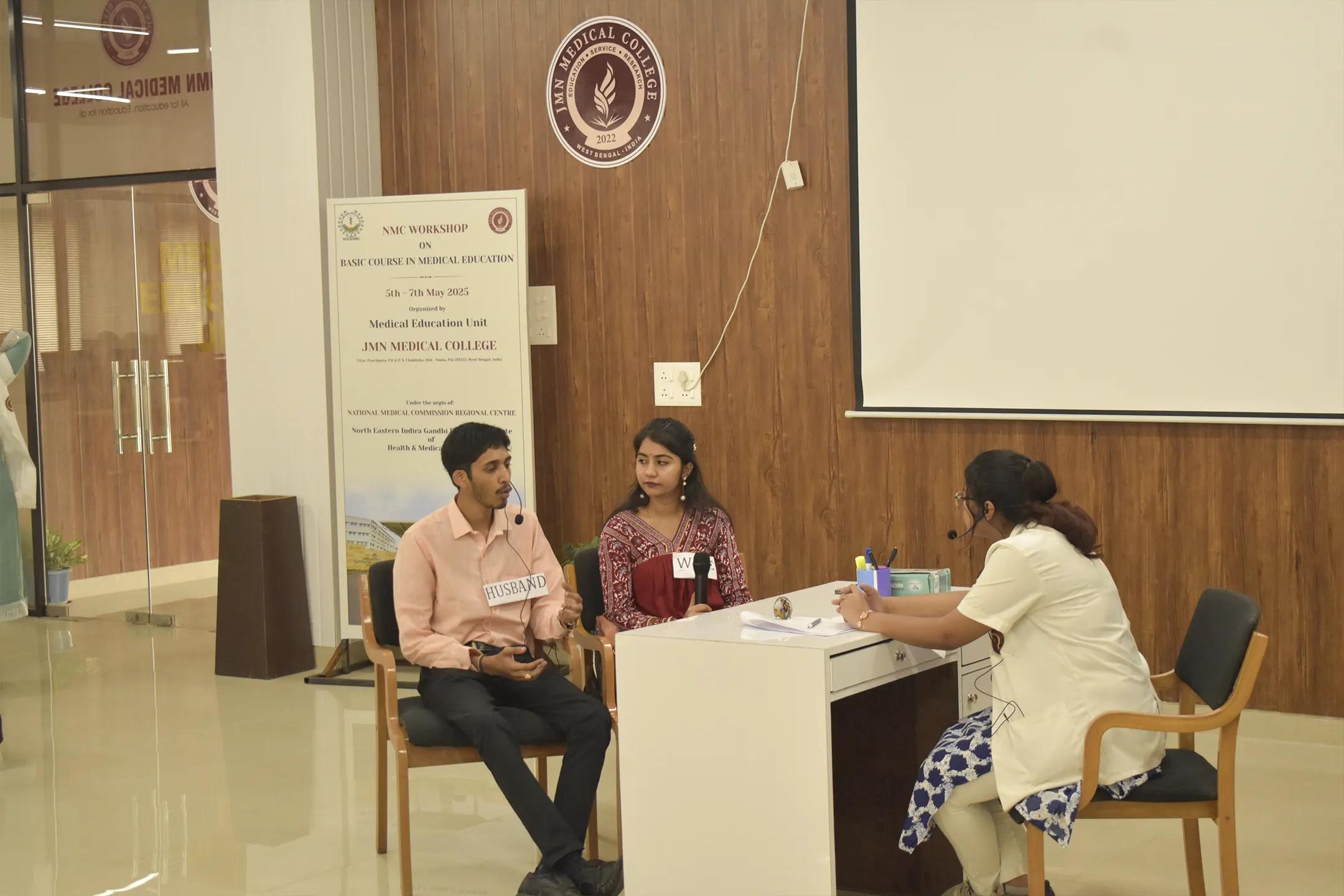
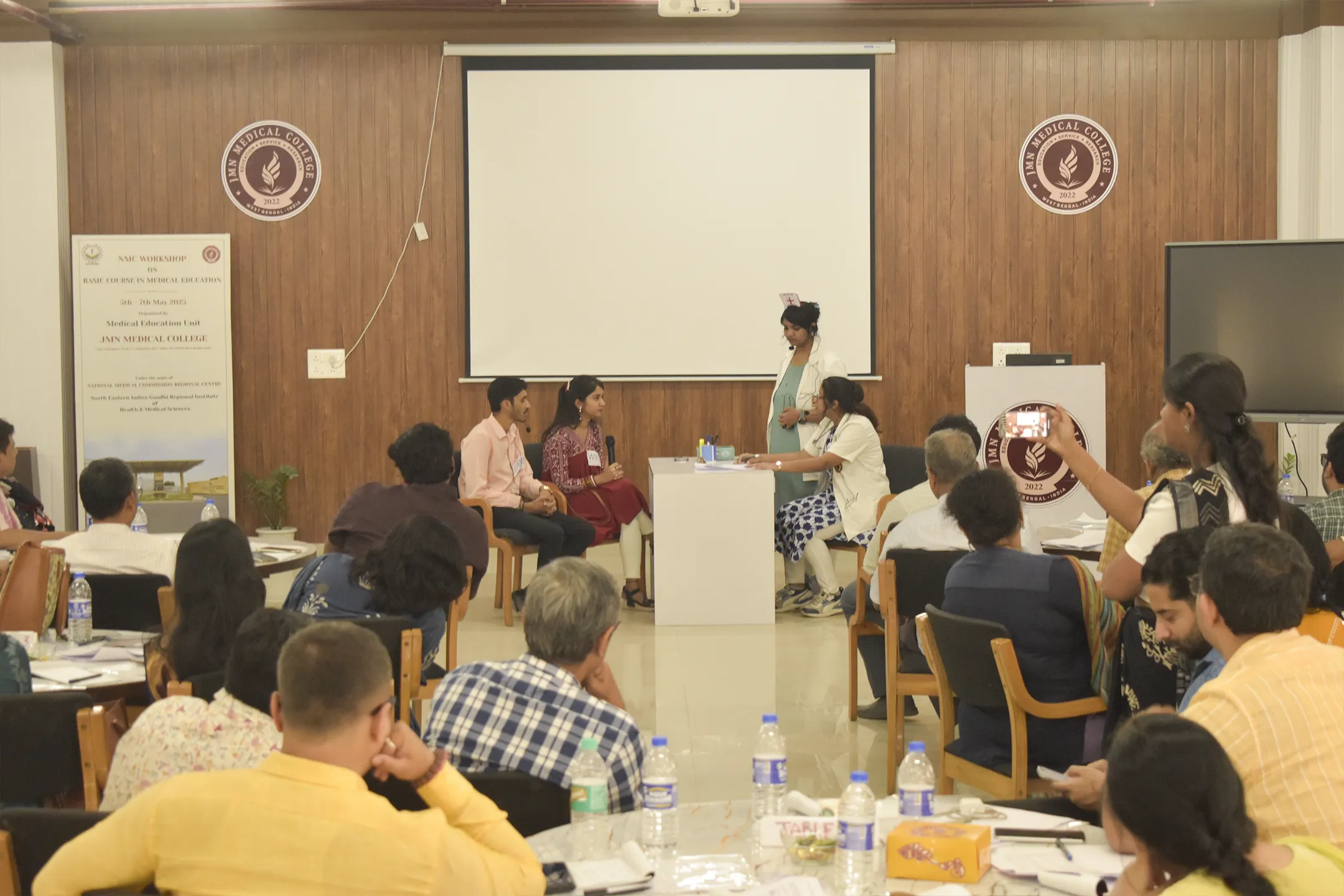
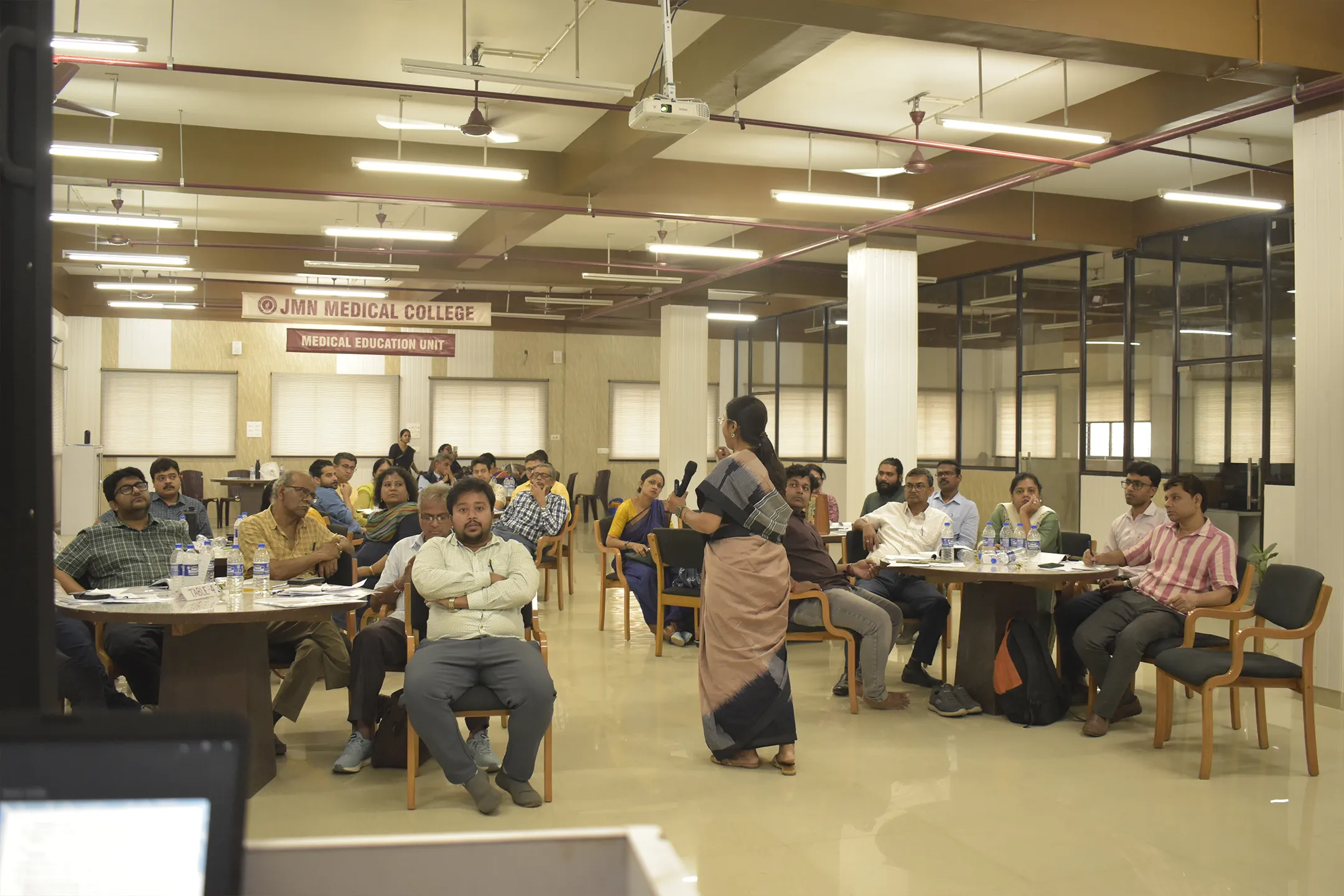
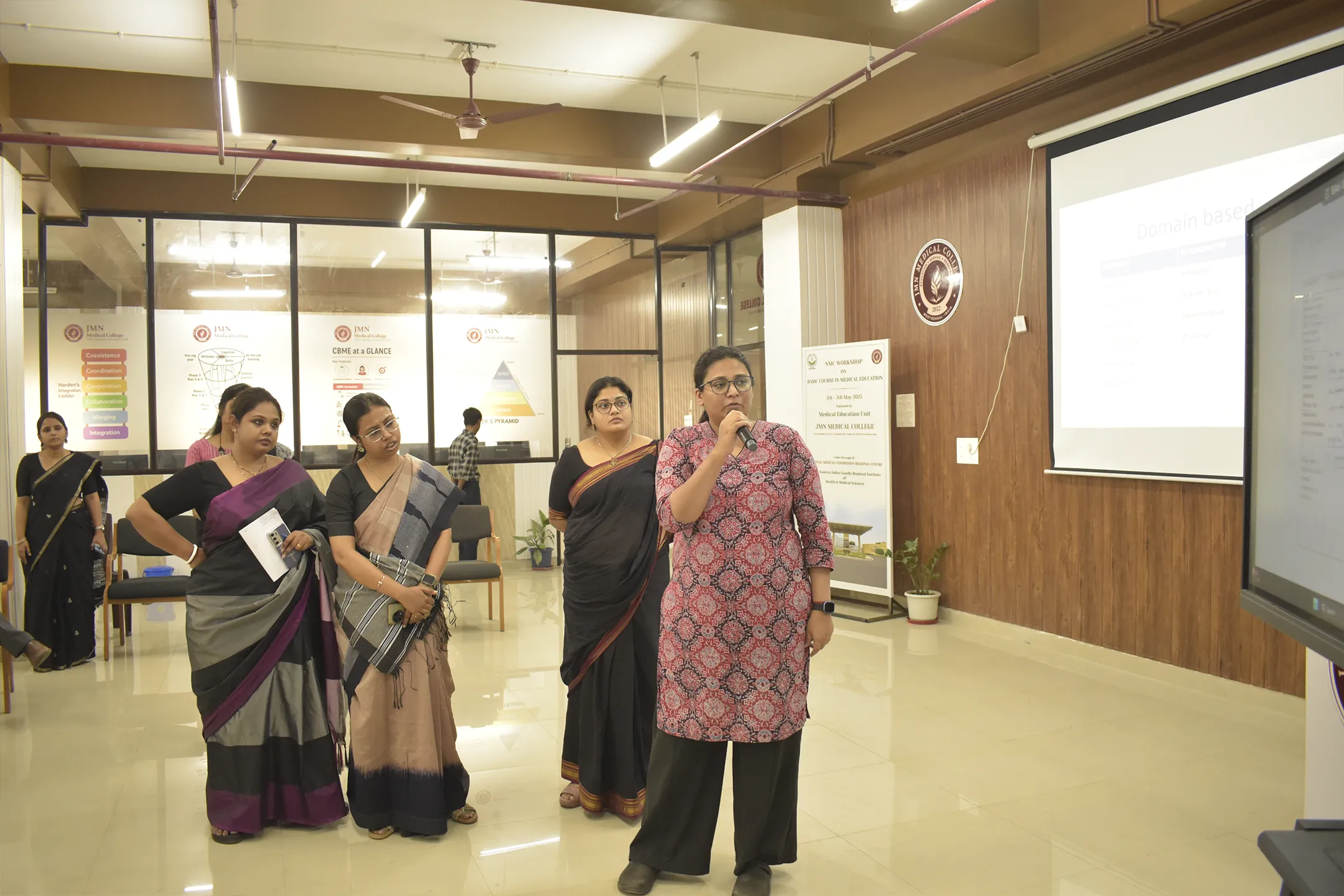
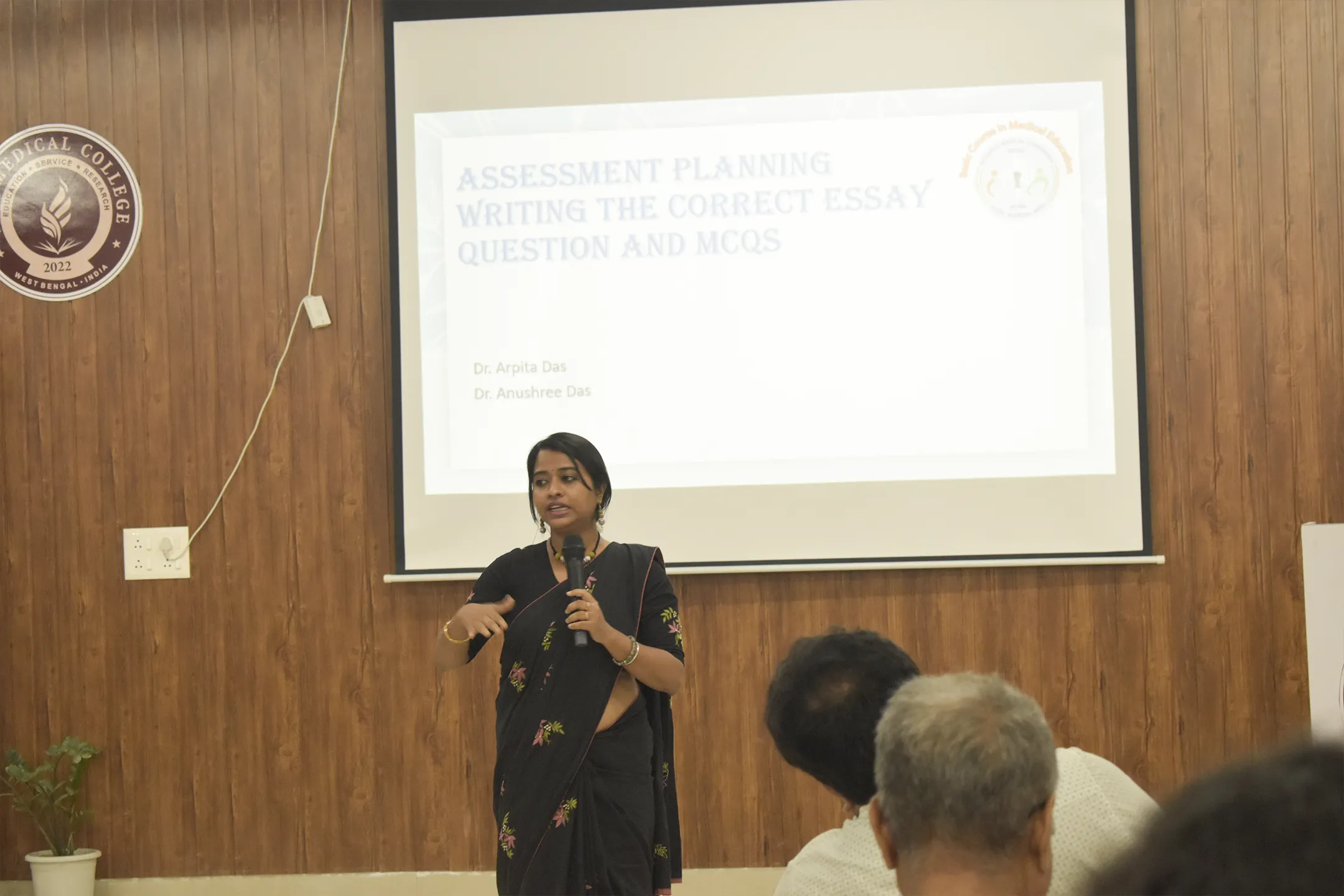
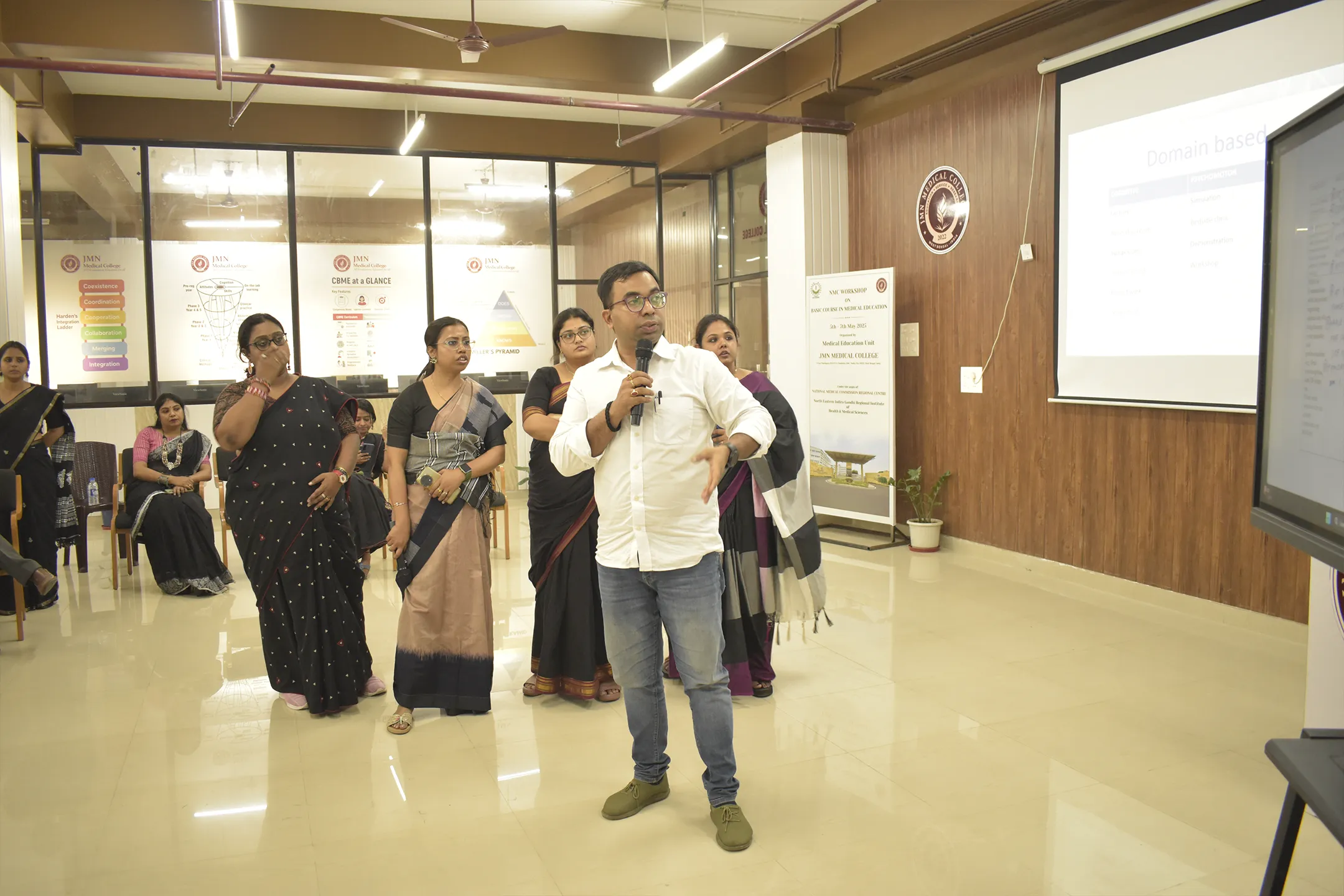
Day 3: Integration, Mentorship and Strategic Curriculum Planning
Lesson Plan Writing
A focused session on designing comprehensive lesson plans was led by Dr. Aditi Saha and Dr. Suprasanna Bhattacharya. The faculty used curriculum examples to prepare detailed plans including objectives, methods, materials, time allocation, and assessment strategies.
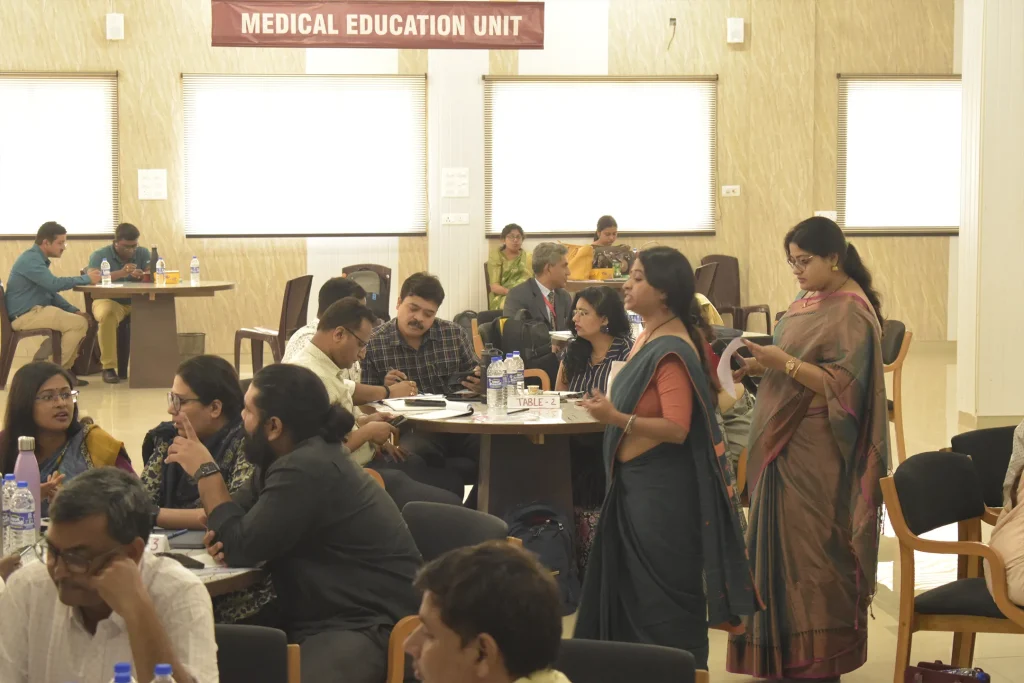
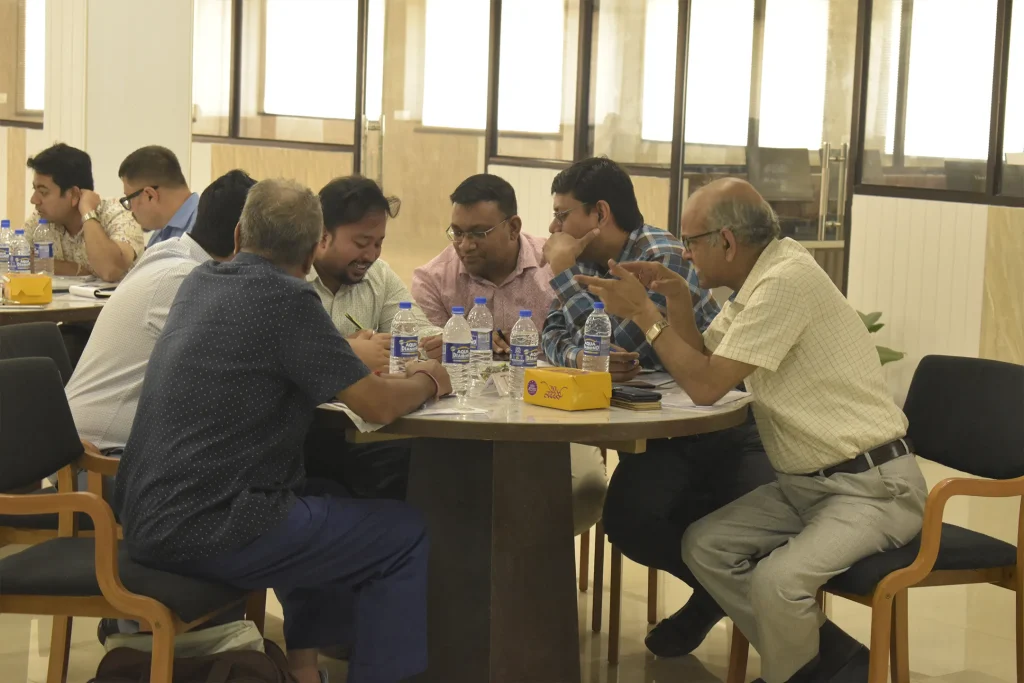
Assessing Clinical and Practical Skills
Dr. Arpita Das, Dr. Anushree Das, Dr. Riya Das, and Dr. Chitrita Ghosh elaborated on the assessment of clinical skills using tools such as OSCE/OSPE and workplace-based assessment strategies like DOPS, and Mini-CEX. Real-life case scenarios were used for simulations, and participants practised developing checklists and rubrics.
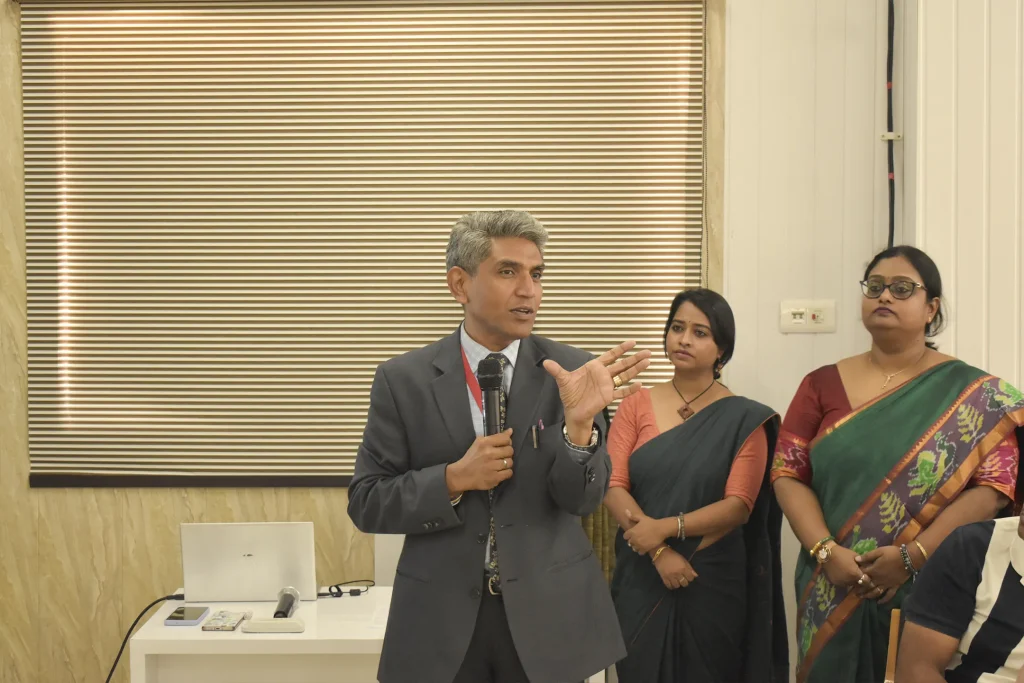
Academic Growth and Networking
Dr. Saugat Banerjee and Dr. Sabyasachi Roy encouraged faculty to view their role as educators beyond the classroom, highlighting opportunities such as the FAIMER fellowship, NTTC, and ACME programs. The role of Medical Education Units (MEUs) in academic leadership and quality assurance was discussed.
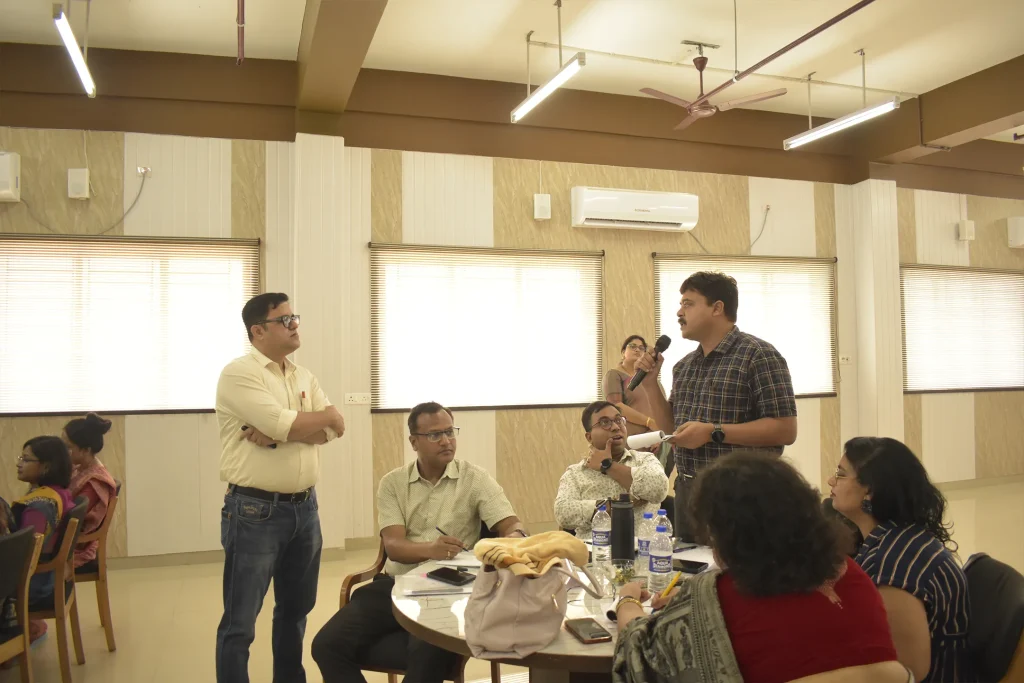
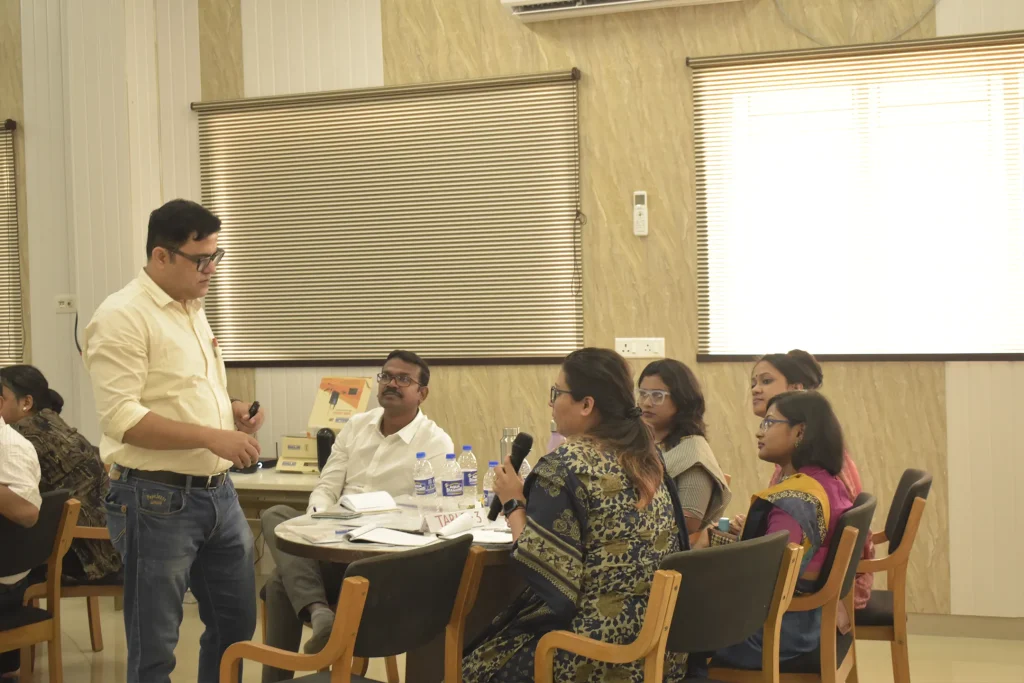
Aligning Assessment with Competencies and TLMs
In this interactive session, participants worked in teams to create alignment matrices, matching competencies with TLMs and appropriate assessments. This activity reinforced the principle of constructive alignment in curriculum design.
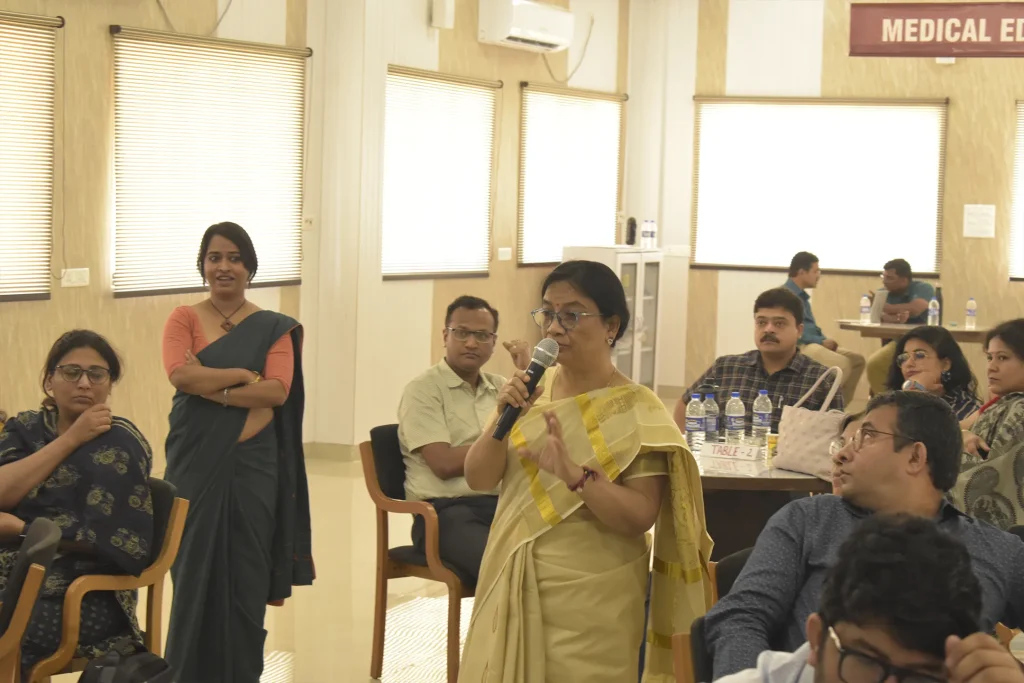
Mentoring and Curriculum Planning
The penultimate session by Dr. Suprasanna Bhattacharya and Dr. Sreejita Mridha discussed the principles of mentoring and its implementation in UG/PG curricula. The final academic session on Drafting a Phase-Wise Timetable was led by Dr. Barnik Chaudhury and Dr. Riya Das, where faculty designed CBME-aligned timetables incorporating AETCOM, electives, SDL, and integrated modules.
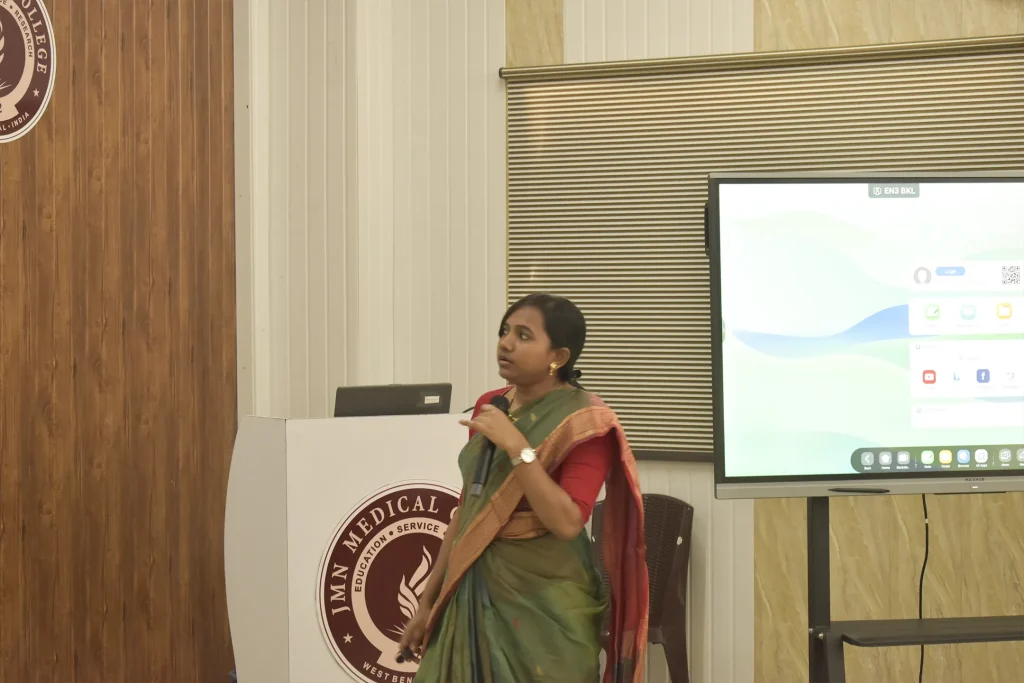
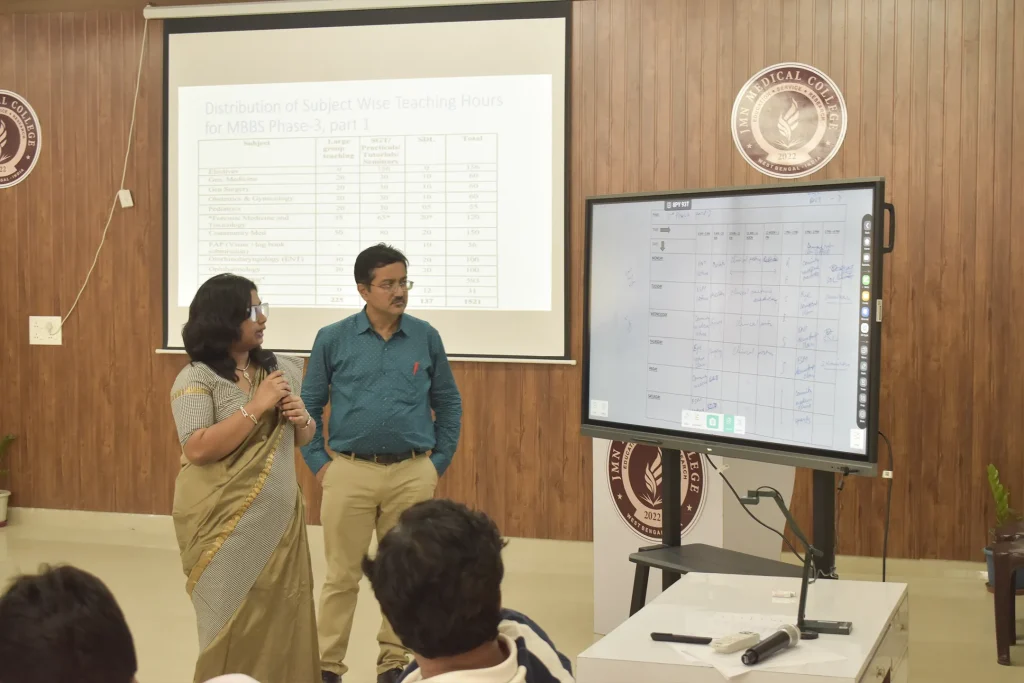
Feedback and Closing Ceremony
The workshop concluded with a post-test and retro-pre feedback, allowing participants to reflect on their learning. The closing remarks were delivered by Dr. Manoj Patki, Dr. Amita Ray, and Dr. Aditi Saha, who appreciated the participants’ enthusiasm and commitment.
The BCME 2025 at JMN Medical College, Chakdaha, was a landmark academic initiative that not only enhanced faculty skills in medical education but also fostered a culture of reflective teaching and continuous improvement. The workshop empowered participants to transition toward student-cantered, outcome-oriented teaching practices rooted in CBME principles.
The three-day program proved to be a transformative experience, laying the groundwork for sustainable changes in teaching, assessment, and faculty development across departments. The active engagement of participants, high-quality facilitation, and institutional support contributed to the overall success of the event.

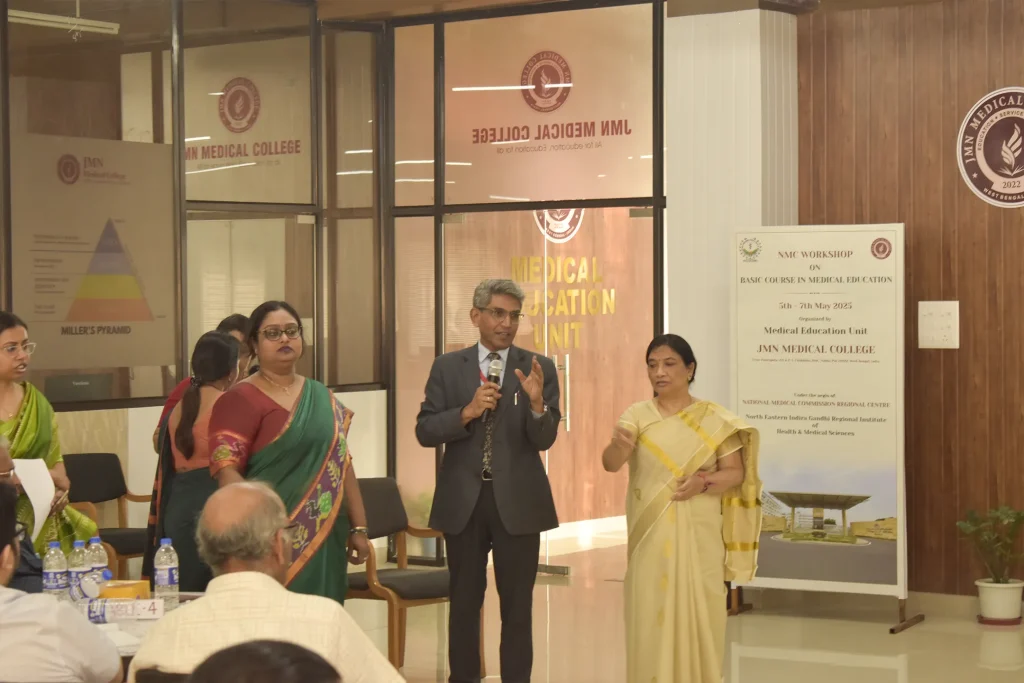
Speech by Prof.(Dr.) Manoj B. Patki :- Thank you so much for this initiative.
Calcutta Medical College has a long-standing legacy in spirit, even though it is a relatively new establishment. Remarkably, within just two years of its inception, this institution has successfully organized the Basic Course in Medical Education (BCME) program—a commendable and noteworthy achievement. It speaks volumes about the commitment, enthusiasm, and vision of the leadership and the team involved.
The college traces the roots of its academic culture to a tradition established as early as 1835, with the medical college functioning from around 1836–1837. Those were the days when medical education was solely focused on teaching. And yet, look how far we’ve come.
With due respect, I must say the team has done an excellent and exemplary job. I’ve been part of this system for the past seven years, and I can say that what you are doing—and expecting—is truly remarkable. But more is yet to come, because when expectations rise, so does responsibility.
This team, led by Principal Prof.(Dr.)Amita Ray, has breathed new life into this institution. In only 1.5 years of time that have induced BCME program and not only that they executed the program very meticulously. In just three days, as an observer, I’ve seen so many meaningful activities take place. There has been tremendous leadership and support throughout this journey.
Organizing the BCME program itself is a blessing. It reflects vision, effort, and a deep sense of purpose. What we witnessed here is exactly what a medical college should aspire to, and the team has proven that they can make the most of every opportunity.
Some of you have rightly said that the sessions were useful—and I wholeheartedly agree.
Let’s keep this momentum going.
Thank you.
